- High School
- College Search
- College Admissions
- Financial Aid
- College Life


Juniors, Now’s the Time to Schedule Your College Visits
Juniors, it’s time for you to get started on college visits.
Whether you’re thinking about knocking out one or two or hitting a series of colleges, here is your go-to guide for setting up a college visit.
We’ll walk you through a steps to take before, during and after visits to help you find your perfect fit.
And if COVID-19 protocols are still underway, don’t miss our article about what to do when you can’t tour colleges in person .
What Can Juniors Do Right Now?
Juniors can do a lot right now, including developing a checklist and other things you can put on the family calendar.
Step 1: Start talking.
That’s right. Sit down and have a conversation with your family.
What are you thinking you want to do for college? Do you think you want to go to a large school? A small school? What fits your personality and preferences?
Start talking with adults you trust about schools that make sense for your needs.
Step 2: Brainstorm.
Have no idea where to start? Start a brainstorming session where you write down your visions about what you think your college experience might be like.
Rather than throwing a dart at a map and jumping in the car, it’s a good idea to ask yourself a few questions:
- Do you see yourself going to a large or small school?
- Do you want a lot of personalized attention?
- Are you looking for a more selective institution?
- How far away from home do you want to live?
- When you envision college, what do you think of?
In other words, think broadly about your college visit choices, then think more narrowly about the colleges you’d like to visit.
Put a premium on relationships when you make this list.
What kind of people do you want to meet? What type of individuals do you want to learn from?
Remember, college is about way more than pretty residence halls, beautiful buildings and other aesthetic things. It’s about the people who influence you along the way.
Step 3: Research at least one college.
Choose at least one college and do as much research as you can. Learn more about that particular school’s:
- Admission criteria
- Results — how many students go to graduate school, get a job after graduation, etc.
- School profile
- Academics and selectivity: Are you looking for a serious academic environment? Would you rather go to a school that focuses on undergraduate teaching — or research?
- Potential majors
- Housing information
- Extracurricular activities
- Athletics opportunities
After you narrow down some of the “big” things, like distance from home and general experience, then you can start thinking about things like major, requirements and more.
Does this college college or university you’ve researched fit the bill? If not, look for another one. If that one makes sense, move toward school as your first visit.
Step 4: Check the calendar.
Once you’ve honed in on your first college to visit, figure out what visit day fits into your schedule. Check your calendar and your family members’ calendars too. Remember, mom and dad likely have to drive you to your visit or coordinate flights. You need to plan the visit with your parents, and you might need to make sure your brothers’ and sisters’ schedules are open too.
How to Set Up a College Visits
First of all, make sure you (the student!) call the schools where you’re interested in setting up a visit.
Your mom or dad should not make the call. It’s time to put some of those adulting skills into practice.
Step 1: Think through what you want to do on your visit.
Who are the must-see people on your radar—the soccer coach, tutoring center, a financial aid advisor? It’s OK if you’re not sure. You can work through some of these questions when you make your phone call to the admissions office.
Step 2: Call the college or university’s admissions office.
Don’t set up a visit online. Talk to an actual person.
Or, if you do set up a visit online, call and make sure the admissions office received your scheduled visit—and that it didn’t get lost in cyberspace.
Have a detailed conversation about what you’d like to do when you’re on the visit.
Step 3: Ask for a personal campus visit.
Try to steer clear of group visit days.
Naturally, you’re an individual and have specific interests and needs.
When you’re stuck on a group visit, no one student will have the same interests as you. You could get stuck touring the gym for 25 minutes of your hour-long tour (even if you’re not an athlete or hate the thought of a treadmill). Who wants that?
A personal campus visit ensures your visit is all about you and nobody else.
Step 5: Get ready!
You don’t want to start a college visit without doing some preparation. You want to know as much as possible about the college you’re visiting before you visit.
Simple. You don’t want to waste time learning stuff you already know. If you already know the basics, like the size of the college, majors available and costs, why spend time relearning stuff you already know?
Plus, it brings camaraderie with the admission staff or chemistry professors when you say, “Yeah! And that biochemistry secondary major—that sounds cool.”
You’ll never believe how much people’s eyes light up when you know something about the college or university already.
What to Do During/After Visits
When you arrive at the admissions office, go to the campus visit coordinator’s desk and introduce yourself. That individual will help you get your day started in the right direction.
While you’re on your visit, do your best to ask great questions. You want to think of questions before you visit and ask everyone questions. Get each person talking about the college or university you’re visiting. It’s best to get candid thoughts from each individual you talk to.
This may sound like a pain, but it’s a good idea to get all your thoughts together and take a minute or two to jot down all your initial reactions to the college you’ve just visited. Grab your phone and type in some notes on the card or plane ride home.
Believe it or not, it’s difficult to remember each individual school after your 10th college visit.
Now’s the Time!
Juniors, we’ve offered everything you need to know about how to schedule a college visit .
It’s a matter of sitting down with your family members or other trusted adults, pouring over Niche’s 2021 college rankings and making lists of what matters to you.
It’s going to be a great time, so have fun with the process.
Ready to Find Your Niche? Create an Account
Author: Melissa Brock
Melissa Brock is the founder of College Money Tips and Money editor at Benzinga. She loves helping families navigate their finances and the college search process. Check out her essential timeline and checklist for the college search!
More Articles By Niche
While many current college students tout the importance of being able to actually step foot onto the campus you might go to, sometimes the circumstances just do not work out.
At Niche, we know a college is more than its stats or buildings. We also know it can be hard to figure out a college’s vibe or how students feel about it from its website alone. Using our comprehensive college profiles and social media accounts, you can get a sense of what life at a college is really like. Here are three simple ways to do that.
In case you haven’t heard yet, Niche has an amazing new opportunity for high school seniors. Niche Direct Admissions is a program that allows participating colleges to accept students and offer scholarships based on their Niche Profile. That’s right — no application needed.

Disclosure: This article contains affiliate links, meaning that when you make a purchase, I earn a small commission. For more information, see the site Disclaimer .
College Visits for Juniors: A Perfect Time for Campus Tours
Are you wondering when to do college visits? Should high school juniors visit colleges?
College visits for juniors are ideal! (Although of course you can start visiting colleges at any time during high school!)
Campus visits are an important part of the college search process. Students learn what they like and dislike about different colleges and find out what college life might like for them.
Junior year of high school is a great time to visit college campuses. College visits for high school juniors will help them learn about colleges and decide where to apply.
During freshman and sophomore year of high school, students are starting to take advanced classes and trying out different activities as they prepare for college .
By their junior year, students have a pretty good sense of what subjects they like, what area of study they might like to pursue as a college major, and who they are as a person.
Then, the closer students get to their final year of high school, the busier their schedules are with sports, classes, extracurriculars, and friends.
Visiting colleges as a high school junior is the best way to to decide if a college is right for you. This blog post is all about why juniors should colleges, how to plan college visits, and what to do on college visits!

Why High School Juniors Should Visit Colleges
1. high school juniors are ready to see what college is really like.
Juniors in high school are pretty mature. They know what subjects they like and dislike.
High school juniors might have a sense of what they’d like to major in in college. They know college is just around the corner, but aren’t sure exactly how college will be different than high school.
College visits for juniors can help them see what college will really be like. Campus visits offer a glimpse into the many ways college differs from high school.
Juniors touring colleges can see what it’s like to live in a dorm and eat in a dining hall. Juniors can talk to professors and students about the academic rigor they can expect in college and how to prepare for it.
The campus tour guide will be a current student. They’ll share their experiences with classes, clubs, and college life, so that high school students touring the college will know more about what it’s like to go to college there.

2. College visits are Much less stressful before senior year
Waiting until senior year to start visiting colleges means that you will already be behind on deciding what college would be the right fit for you.
If you haven’t visited any colleges, it will be hard to know how you’d actually feel about attending the colleges on your list.
Will a large university make you feel lost in the crowd or excited about all the possibilities?
Will a small liberal arts college make you feel seen or stifled?
Will a big city campus make you feel energized or exhausted?
The college application process might feel more stressful because you’re not sure where to apply. If you haven’t narrowed down your list of colleges and researched them to be sure they’d be a good fit, it will take you longer to start your applications. You’ll also have to allow time for extra essays and scholarship applications.
Senior year is extremely busy. Seniors planning to go to college are probably taking several advanced or AP classes.
You might be playing a sport, participating in clubs, volunteering, or serving in a leadership role.
Of course, you’ll also be working on those college essays and applications. As a busy senior, finding time to visit colleges will be extremely challenging.
By visiting colleges as a junior, you’ll have time to visit more colleges. You’ll be able to reflect on what you liked and disliked about each one. You’ll have time to do more research and talk to students or professors about each college you’re considering.
3. Junior year college tours will help you plan your senior year
By visiting colleges during your junior year, you can find out what classes you need to take your senior year to help you get accepted into the college or a certain major.
You definitely don’t want to opt out of a class your senior year, only to then find out that it’s recommended or required by the college you want to attend.
When you meet with a college admissions counselor, you can ask specific questions and find out what you need to do to stand out as an applicant (like adding more test prep to boost SAT or ACT scores) .
4. Visit colleges junior year to help you plan college applications
By visiting colleges as a high school junior, you can decide what colleges or what type of colleges you want to apply to well before the fall of your senior year.
Visiting colleges during the junior year of high school takes the pressure off each visit because students still have plenty of time to finalize the list of colleges they will apply to.
You’ll also learn more about what colleges are looking for in their applicants. After visiting a college, you will be more inspired to write the essential “Why do you want to attend this college?” essay prompt.
Also, you’ll learn about the college’s timeline for applications and scholarships. An admission counselor might even tell you about some scholarships that aren’t mentioned online.
Visiting college campuses before you send in applications will help you choose to apply to colleges where you feel confident you’d be happy. It’s so important to learn what colleges you want to mark off your list and not bother applying to long before you start applications.

5. Learn what you are looking for in a college
By taking the time to visit colleges long before it’s time to apply to colleges, you’ll have better opportunities to decide what you do (and don’t) like about different colleges. When you finalize your list of colleges to apply to, you’ll know what matters to you.
College visits are a key way students decide if a college would be a good fit for them.
If you take the time to visit colleges as a junior, you’ll have more opportunities to decide what you do and don’t like, what matters most in a school, what size school fits you best, and what vibe you’re looking for in a college.
6. You won’t have to miss school your senior year
Tour colleges your junior year, during fall break, winter break, and spring break, so you can maximize how many colleges you visit.
Visiting colleges your junior year during school breaks means you can take a lot of college tours without worrying about what you’re missing when you’re not at school. Also, touring colleges on school breaks means that you can take a vacation and tour colleges all in one trip!
Visit colleges on summer break
You can visit colleges the summer before and the summer after your junior year of high school. Then, you can plan your college visits around your summer family vacations.
Summer college visits mean you don’t have to stress about missing school or making up assignments. Also, summer college tours allow more time to visit farther away destinations.
Summer college tours are nice, because you can space them out. If you’re visiting colleges as part of a vacation in a certain area, you can do other things, like the beach or museums, in between college visits.
Unfortunately, since colleges won’t be in session or will have smaller numbers of students on campus, you won’t see what the college is really like during the academic year.
However, college admissions offices try really hard to give visitors an authentic feel for the college. Feel free to ask your college tour guide what the campus is really like during the school year.
Visit colleges on Fall break
If you start visiting colleges your junior year of high school, an easy way to start is by visiting nearby colleges over your fall break.
Use your fall break to visit nearby colleges in your city, a neighboring town, or your state. Even if you don’t think you’d be interested in the school, take a tour.
Touring a nearby college will help you learn about college life in general and give you a sense of what you do and don’t want in a college.
Visit Colleges on spring break
Use your spring break to tour colleges, since you’ll have a full week off school. You can travel somewhere to visit several colleges. Or you can plan a quick day trip to see colleges close to home.
Spring break college visits will let you see what things are really like on college campuses because classes will probably be in session. Odds are that your fall or spring break won’t overlap with the breaks of every college you want to visit, so lots of students will be on campus.
Visiting colleges in the spring of your junior year can be particularly helpful, since you’re working on your college list and deciding where to apply.
7. Visit in your junior year if you plan to apply early decision
If you have already narrowed down your college list and are deciding where you want to apply early decision, definitely visit colleges before your senior year starts.
Before applying early decision you want to be absolutely certain that the university you’re applying to is the right one for you.
8. Schedule your College visits around your sports seasons
Planning your college visits as a junior gives you some flexibility to schedule your visits around your high school sport.
By planning ahead, you can visit all the colleges you want to see without interfering with games. You might even be able to schedule some college visits around travel games or tournaments.

How to Plan College Visits for Juniors
1. research colleges you want to tour.
As a junior, you may be just starting to think about your college list. If you plan to cast a wide net and visit lots of colleges, you can wait to do in-depth research.
If you know you’ll only be visiting a few colleges, I’d recommend doing some research before you go:
- Does this college have the major you’re interested in—particularly if you want to study a more obscure topic.
- What is most important to you about the college experience?
- How close to home do you want or need to be when going to college?
- Are your grades and test scores in line with students who are accepted at this college?
- Are you likely to be able to afford this college? Does this college give financial aid or merit scholarships that would make it affordable to you?
2.Determine how far to travel for college tours
First, how far you want to travel to take college tours might depend on a few factors. Do you want to stay close to home for college or go far away? How far away is too far?
For my oldest daughter, we literally used a compass to draw a circle on a map. We focused on colleges that were within an eight-hour driving radius from our hometown. That way, she was within a day’s drive of home.
Second, how much time do you have for college visits? Summers are a great time to make far-away campus tours part of your summer vacation plans.
Fall and spring breaks are perfect opportunities for college trips too!
But if you have to fit in college tours over long weekends, that might determine how far you want to travel to visit college campuses.
3. Maximize your travel
Visit clusters of colleges located near each other. Investigating several types of colleges and universities on one trip can help students quickly determine what they like and don’t like about different options.
You’ll find that big cities often boast several colleges and universities of different sizes.
In many rural areas, you’ll be able to find clusters of colleges and universities within a few hours of each other. Decide how many schools you want to visit and plan accordingly.
When it comes to figuring out an efficient travel route, Google Maps is your friend!

4. Visit colleges during the week
This is an annoying fact of college visits: even though they expect all parental figures to have a full-time job in order to pay for college, only a few schools regularly offer tours on weekends.
So, if you want to take a formal tour through the admissions office or see what regular day-to-day life is like on campus, you’ll need to tour on a weekday.
My tip is to decide on all the colleges you’d like to visit, and see which schools have tour availability. Then reserve tours and plan your schedule based on where and when you can book a tour.
5. Don’t visit Colleges on Holidays
Universities observe federal holidays. That means offices are closed and there are no classes.
Try not to visit colleges on Labor Day weekend, Thanksgiving weekend, Christmas week, or other federal holidays. If you do visit on holidays, know that there won’t be tours available and campus will be pretty quiet.
Also, you won’t be able to meet with the admissions officers or professors.
However, if you have to visit a college when it’s closed, and you can’t take an official tour, don’t worry.
Every college has a self-guided tour of campus available on its website! Even a stealth visit will give you a better understanding of whether a particular school would be a good fit for you.
6. Visit different types of colleges
Go to a large university and a small college.
Include a state school and a private college.
Tour a college in a city, one in a small town, and another in a rural setting.
You might be surprised to find that you like a college you didn’t expect to like!
7. Plan ahead
To make the most of your college visits, plan your visit well ahead of time. College tours book up quickly, so finalize your plans in advance.
Each college does its tours differently. Some colleges offer tours on the hour, every hour.
Some only offer two or three tour sessions on certain days of the week. Be sure to check each college’s website to see what your options are.
8. Set a budget for college tours
When you add up gas prices or airline ticket costs, hotel rooms, and meals out, college visits are pricey! And that’s not even counting the sweatshirts and other swag from the campus bookstore!
Before you go on tours, come up with a budget. Be sure the trip will be affordable for your family and try to minimize surprise expenses.

What Juniors Should Do When Visiting Colleges
1. participate in special tours of the college.
Colleges often offer special preview days for high school students. For these events, colleges roll out the red carpet to welcome prospective students.
Sometimes high school students visiting colleges for these special admissions events get free swag, complementary lunch, and special open house tours of academic departments.
Colleges may host info sessions, panel discussions, and conversations with a faculty member.
Find out if the college you want to visit has opportunities for you to take a tour of your academic department, meet with a professor, attend a class, talk with a coach, or have an interview.
These opportunities might not be offered every day and will require a reservation, so plan ahead.
Another bonus of these special tours is that they’re sometimes offered on weekends.
2. Take your time when you’re visiting colleges
You made an effort to get to the college. Take time to just be there and take in the vibe.
Spend time hanging out at the student center or sitting in the sun on the quad.
Try the cafeteria food.
Browse the bookstore.
Sit down on a bench on the college green and people watch.
Just take some extra time to get a sense for the culture of the college and how much school spirit you see among the students.

3. Explore the neighborhood or town near the college
Spend some time in the area around the college or the nearest town. Even if you just drive by, check out the neighborhood surrounding the college.
See what it might feel like to live in that community and the surrounding area for four years. Is it convenient enough to grab groceries or a bite to eat off campus? Do you feel safe?
4. Talk to everyone on the college campus
This is not the time to be shy!
Ask current students what it’s like to be on campus. Talk to the custodial staff and dining hall workers. Ask faculty questions about research options and academic supports.
Enquire about the student health center, mental health support, and accommodations for any special supports you might need.
Find out what greek life is like on campus. What type of events does the student life office sponsor? Are there a lot of volunteer opportunities for first-year college students?
Ask your tour guide hard questions. By talking to current college students and other people who are part of the college, you can learn a lot about the culture of the school.
5. Make a good impression
Be on time. Pay attention to the presenters, student ambassadors, and student tour guides. Ask good questions.
College admissions are competitive, so do whatever you can to put your best foot forward. Feel free to write a thank you note to your admissions officer and anyone else who was particularly helpful on your visit.
College admissions counselors usually just conduct formal admissions interviews with high school seniors who have already applied. However, you’ll probably speak informally with admissions staff.
Be ready to ask a few questions about the admissions process or specific programs you’re interested in.
6. Ask about financial and merit aid
Now’s the time to find out if this college will be affordable to your family or not.
Before you get too heavily invested in any college, be sure that the final price will be one you can afford.
It’s better to find out before you apply that you can’t afford a certain college so you can choose a different, more affordable, school to apply to. Be realistic about the school’s affordability.

7. See all the places on the college campus
Eat a meal in the dining hall. Browse the bulletin boards in the student center.
Check out the academic buildings. Explore the library.
Peek in the gym and see what the athletic facilities are like.
Go everywhere on campus (that you’re allowed!) and see what it would be like to live there.
8. Go virtual
If you can’t visit a college campus, take a virtual tour your junior year of high school. If you’ve already visited but need a refresher on the college, take the virtual tour.
Other ways you can get an inside look at what a college is really like (without being there) is to look at college, department, and club social media accounts.
Also, stream the college radio station, read campus newspaper, and browse department websites.
For international students or if you live far away from the colleges you want to visit, virtual college tours are a good opportunity to see what a college is like. Colleges provide really good alternatives to in-person visits to really show what campus life is like.
9. Take notes on the experience
It may seem weird at the time, but you’ll be glad you did.
Write down key thoughts to help you remember the visit. Note the name of your college tour guide and of anyone else you met with (an admissions officer, professor, department chair, etc.).
Send your admissions counselor an email with follow-up questions or information. If you’re visiting colleges as a junior, you want to be able to remember the details of the campus tour when you’re a senior making your final decisions.
10. Take photos on your college tour
Be sure to take lots of pictures of important things you want to remember.
Definitely take photos of a dorm room, the outside of the dorms, a classroom and cafeteria!
You might end up with photos of certain places on campus, signs, things you hated or loved—whatever speaks to you!
Final Thoughts On College Visits for High School Juniors
Junior year is the perfect time for high school students to visit colleges. These tips for planning college visits for juniors and ideas of what juniors should do on college visits will help you make the most of each campus tour and find the right college for you!
After more than two years of high school, juniors know what subjects they prefer, what they want to study in college, what extracurricular activities matter most to them, and how they want to spend their free time in college.
Junior year of high school is the perfect time for students to evaluate which campus environments are most comfortable for them, how far from home they want to be, and how they learn best.
High school juniors are self aware and ready to start exploring their high education options. After visiting several colleges, they can continue to research college options and fine tune their college lists.
Visiting colleges before you apply will help ensure that all the colleges you apply to are ones you’d be happy to go to. You’ll be able to tell which schools would be the best fit for you.
This can save money on application fees. It can also prevent a crisis if you realize too late that you actually don’t like the college you thought was your dream school.
Take advantage of the maturity that comes with junior year, before the pressures of senior year start, and hit the road to visit colleges and discover which ones might be right for you!
Graduate of Brown University, higher ed professional, and mom of three. Sharing everything I’ve learned about college with you.
Similar Posts

What is rolling admission? Is it Right for You?
Are you wondering what rolling admission to college is? What are the advantages of rolling admission? Is rolling admission…

High School Senior Year Bucket List: 150 Fun Things to Do
Are you looking for the best senior year bucket list? This post will inspire you with the absolute best…

How to Choose a Unique College Essay Topic
Learn how to write a unique college admissions essay that makes you stand out.

Make a Great impression at your college admissions interview
Are you wondering how to make a great impression at a college admissions interview? College admission interviews can be…

Best Questions to Ask at a College Interview
Learn what questions to ask at a college interview: questions to ask a college admissions counselor, a college alum, or a student interviewer.

How to Write an Amazing College Essay: 25 Tips
Why you’re writing a college essay, how to choose a topic for your college essay, how to write an amazing college essay, how to edit your college essay, and how to make your college essay stand out.
When to Visit Colleges
Event: for parents: how to plan a college visit, how to schedule your campus visits.
Visiting a college campus is one of the most exciting steps in choosing a college. It’s best to visit colleges before your applications are due. That way, you can be confident you'd be happy at any college you're applying to.
It's also best to go when the college is in session. You'll see the campus when classes are meeting and day-to-day activities are in full swing.
How to Pick a Date
Here are some guidelines on when to visit. Plan your visit well ahead of time. That way you can make sure you see what you need to see and meet with the people who can tell you what you need to know.
During the Week
Mondays through Thursdays are ideal for visits because you can get a good idea of what campus life is like. Visiting on a Friday may not be as practical. Students, faculty, and staff might be busy with social activities starting Friday afternoon.
High school holidays that fall on Mondays are often perfect opportunities for making college visits. Many colleges are in session on these days─and you won't be missing any of your high school classes.
The Best Seasons
The spring of your junior year is a good time if you've already researched colleges. Spring break is also good if you play fall sports or are considering applying under early action or early decision plans, which usually have application deadlines in November of your senior year.
Early fall is also a good time for seniors to visit. That timing can help seniors narrow their college lists.

After You've Been Accepted
Colleges where you've been accepted might invite you to spend a few days on campus before the May 1 reply date. Many schools do this to encourage students they've accepted to enroll. This is an excellent opportunity to make in-depth comparisons between the colleges that have accepted you. If possible, visit with current students who attended your high school.
However, if you're waiting to visit colleges after you've received acceptance letters, remember that you may have only a few weeks to visit and decide. Most colleges mail acceptance letters in April and expect a reply by May 1.
When Not to Go
Check specific dates with each college so you don't arrive when the campus is deserted. You can call the college or look on its website for the academic calendar to find out when breaks, reading periods, and exam periods are scheduled.
Colleges are not in session during:
- Thanksgiving weekend
- Christmas week
- Winter and spring breaks
- Summer, unless there is a summer session
College classes don’t meet during:
- Reading period
- Saturdays and Sundays
The admission office may be closed to visitors at certain times. For example, admission officers may be too busy to meet with you in May and April — that’s when they’re reviewing applications. Check with the college.
Adapted from Campus Visits and College Interviews by Zola Dincin Schneider.
When is the best time to visit colleges?
The best time to visit colleges depends on individual preferences, but typically, spring and fall are popular seasons for campus visits. In spring, you can witness campuses come to life with blooming flowers and vibrant energy. At the same time, fall offers the opportunity to experience the start of a new academic year and the excitement of campus activities. By choosing these seasons, prospective students can immerse themselves in the college atmosphere and gain valuable insights into campus life.
What’s the best time to schedule an individual campus visit?
Schedule an individual campus visit during weekdays when classes are in session, allowing you to truly immerse yourself in the campus atmosphere and get a firsthand experience of student life. Interacting with current students, attending classes, and exploring campus facilities during these times can provide valuable insights to help you make an informed decision about the college.
How many college visits should I make?
The number of college visits can vary based on individual circumstances, such as the number of colleges you're considering and your availability. However, you’ll want to visit a handful of colleges that align with your interests and goals. This can help you make a well-informed decision about your future education.
At what grade level should I start visiting colleges?
Generally, it’s recommended to start visiting colleges during your junior or senior year of high school. By then you should have a clearer idea of your interests and goals. The college visits will be more purposeful and allow you to assess how well each college aligns with your academic and personal goals.
Related Articles
College Visits Essentials: Making the Most of Your Campus Tours
College visits essentials.
Embarking on college visits and campus tours marks a significant milestone in the college search process. These experiences offer invaluable opportunities for prospective students to explore potential colleges firsthand, gaining insights into campus life, academics, and extracurricular opportunities. As you begin compiling your college list and narrowing down your choices, college visits can help you make informed decisions about your future.
In this article, we’ll delve into the essentials of college visits, offering practical college visit tips and a college visits checklist for maximizing your experience . We will cover everything from uncovering the questions you should ask during a college tour to understanding how to schedule and plan college visits effectively. And, we’ll look at things you may not have thought about, including having virtual college visits, conducting a self-guided tour, and navigating college campus tours safely and effectively.
We promise this article provides everything you need to know regarding the college visit process. Whether you’re just beginning your college search or fine-tuning your college list, these insights will help you navigate the complexities of the college visit process with confidence.
Let’s get started!
Are College Visits Important?
When making one of the most significant decisions of your academic career, the role of college visits in the college search process cannot be overstated. College campus tours are a crucial part of the decision-making process, offering firsthand insights that can influence your college search.
First and foremost, college visits allow you to immerse yourself in the campus environment and explore academic facilities, dormitories, and recreational amenities. Whether you’re passionate about conducting research in state-of-the-art laboratories or participating in vibrant student organizations, visiting a college in person lets you assess whether it offers the resources and opportunities you seek.
Moreover, college visits offer the chance to interact with current students, faculty members, and admissions staff, providing invaluable perspectives on academics, extracurricular activities, and campus life. These personal connections offer unique insights you simply can’t gain from a website or brochure.
Ultimately, the information and impressions gathered during college visits can significantly impact your college choice. By experiencing campuses firsthand, you can effectively consolidate your college list and compare your top colleges by understanding which colleges resonate with you. Before you make your final decision , you can use the information collected on the campus tours to demonstrate your interest in the college or university, increasing your chances of acceptance.
What Should I Ask On A College Tour?
While college visits and campus tours provide invaluable firsthand experiences , it’s essential to do your homework before stepping foot on any campus. Here’s one of our “pre” college visit tips–conduct thorough research beforehand to help you make the most of your visit. By asking the right questions , you can gather the information you need to make an informed decision about your college choice.
Questions about academics
One crucial aspect of pre-tour research is identifying academic programs and resources that interest you. Take the time to explore the college’s website and familiarize yourself with the range of majors, minors, and academic opportunities available. Here are a couple of questions you may want to ask:
- Can you provide more information about the [specific major/program]?
- Are there opportunities for undergraduate research or internships in [area of interest]?
Questions about campus life
In addition to academic offerings, consider campus life and student services that you would like to know more about. Research the college’s extracurricular activities, student organizations, and campus events to understand the social and cultural opportunities available. Here are other questions you may want to ask:
- What types of student organizations are active on campus?
- Are there opportunities for community service or volunteer work?
More college visit questions
Furthermore, consider other aspects of the school that might not be immediately obvious. Research housing options for juniors, including on-campus dormitories, off-campus apartments, and housing policies for upperclassmen. Also, consider things like parking availability and policies regarding cars on campus. Consider asking questions such as:
- What are the housing options for upperclassmen, and how is housing assigned?
- Is parking available on campus for students, and are there any restrictions on bringing cars?
Conducting thorough research, and making your college visits checklist, is essential for making the most of any college visit.
How Many College Visits Should I Do?
When determining how many college visits you should do, you’ll need to strike a balance between quantity, quality, and expense. While visiting as many colleges as possible may seem ideal, college visits can get pricey. Therefore, it’s crucial to personalize your college visit plan to ensure that you make the most of your time, energy, and financial resources.
Here are some steps you can take to help prioritize your college visits and ensure you are completing the right number of college campus tours:
Four Steps to Planning College Visits
1. start with a broad college list.
Have a wide range of colleges that interest you, encompassing various types of campuses such as big versus small, urban versus rural, and public versus private institutions. Consider including HBCU college tours or schedule one or two Harvard tours. Having a broad college list lets you gain insights into the diverse campus environments and refine your preferences accordingly.
2. Prioritize your top choices
Once you’ve identified your top 3-5 colleges on your college list, prioritize visiting these campuses. Consider planning multiple trips in various capacities if you’re highly interested in a particular school. For example, you can schedule an online UCLA campus tour. Then, schedule an in-person prospective student UCLA campus tour. You can even conduct a self-guided tour versus an official UCLA campus tour to have more flexibility in where you’ll get to go on campus.
3. Balance depth with practicality
While visiting as many colleges as possible can be beneficial, consider the practicalities of your college visits checklist. Virtual college tours and information sessions can be valuable alternatives for colleges that are harder to visit in person. For instance, Harvard tours can be in-person or virtual. Therefore, if Harvard is on your list, plan your Harvard tours accordingly based on your availability and resources.
4. Consider special programs
If you’re invited to special programs for admitted students or specific academic departments, prioritize these college visits. Special programs through HBCU college tours or college visits for juniors often offer opportunities to interact with faculty, current students, and other admitted students, giving you a firsthand glimpse into life on campus.
Next, let’s discuss how to plan and schedule a college visit.
How To Schedule College Visits
Planning your college visits involves careful coordination and scheduling to ensure you make the most of your time on campus. From considering academic calendars to contacting college admissions offices, here are some college visit tips regarding scheduling your campus tours effectively.
Here are two of the most important things to keep in mind when working on the logistics of your campus visits.
How to Work on Logistics of Campus Visits
Consider academic calendars.
Plan your college visits around academic calendars. Before scheduling your college visits, consider the academic calendars of the colleges you plan to visit. Check their websites to determine the dates of important events, such as orientation sessions, midterm exams, and holidays. This is important whether you are planning college visits for juniors, HBCU college tours, or any other kind of college visit.
Contact Admissions Offices
Contact college admissions for tour scheduling. Once you’ve identified potential college visit dates, it’s time to contact the admissions offices or go to the admissions website to schedule your campus tours. Most colleges offer guided campus tours led by student ambassadors or admissions staff. Additionally, many schools host information sessions that provide an overview of the college’s programs, resources, and admissions process.
Scheduling college visits: step-by-step
Let’s take a look at a hypothetical example to better understand the steps it takes to schedule a campus tour. Imagine you’re a high school student living in Chicago. You have already completed a University of Chicago tour, and now, you’re interested in scheduling a tour of the University of Southern California (USC) in Los Angeles. As an in-state college, accessing the University of Chicago tour may have been simple. But let’s look at how you can navigate the scheduling process of an out-of-state college tour:
Navigating an Out-of-State College Tour
- Research USC’s academic calendar to identify optimal visit dates that align with your availability.
- Visit USC’s admissions website to find information about campus tours and information sessions. Determine whether USC offers guided tours, self-guided tours, or virtual college visits for prospective students unable to visit in person.
- Use the USC campus tours website to schedule your campus tour. In addition to scheduling an admissions tour and presentation, consider scheduling an academic department presentation.
- Upon confirmation of your campus tour reservation from USC’s admissions office, make travel arrangements from Chicago to Los Angeles. This includes booking flights, accommodations, and transportation to and from the USC campus.
- Plan your itinerary for your visit to USC. Consider attending guided campus tours, participating in information sessions, exploring campus facilities, and engaging with current students and faculty members.
- During your visit, bring your college visits checklist. Take notes, ask questions, and gather information to help you decide whether USC is the right fit for you.
Since the cost of college visits is a big factor to take into consideration during the planning process, let’s discuss it further.
Are College Visits Free?
As you begin to make your college visit list, you’ll need to understand the costs associated with college visits. While some campus tours may be free, others require careful budgeting and planning to manage expenses.
College visits can incur various expenses, including transportation, accommodation, meals, and miscellaneous fees. While some colleges offer free guided campus tours and information sessions, others may charge a nominal fee for certain services or events.
Tips for managing the cost of college visits
To manage the costs associated with college tours effectively, consider the following college visit tips for budgeting and finding free visit opportunities:
Start planning your campus tours well in advance to take advantage of early booking discounts and special promotions. Research travel options, accommodations, and local amenities to identify cost-saving opportunities and plan your itinerary accordingly.
Utilize virtual college tours
Besides visiting colleges in person, explore virtual college tours offered by colleges and universities. Many institutions, such as Boston College and Harvard University , provide virtual college visits and information sessions that allow you to explore campus facilities, interact with admissions staff, and learn about academic programs from the comfort of your home at no cost.
Explore fly-in programs
Several colleges and universities offer fly-in programs. These programs typically cover travel expenses, accommodations, meals, and participation in campus activities, allowing students to experience campus life firsthand without incurring any costs.
Speaking of fly-in programs, let’s learn a little more about them.
Fly-in programs
Here are three great fly-in programs/opportunities for low-income students.
1. QuestBridge College Prep Scholars Program
College visits for juniors are incredibly important. QuestBridge offers a College Prep Scholars Program for high-achieving, low-income high school juniors which, you guessed it, sponsors college visits for juniors. This program provides participants access to college admissions resources, mentorship opportunities, and fly-in college visits for juniors to top colleges and universities across the United States. Beyond giving fly-in college visits for juniors, QuestBridge takes it a step further and will help fund your attendance to top summer programs at some of the most prestigious colleges in the country.
2. Tulane University, PreviewTU Program
PreviewTU is a campus visit program at Tulane University that typically occurs in the fall. While open to all, students who identify as first-generation college attendees, LGBTQIA+, are from low-income backgrounds or rural/small-town residents, and/or students of color are particularly encouraged to attend. The program is offered both virtually and in person. PTU activities include campus tours, student panels, admissions and financial aid sessions, lunch with Diversity Fellows, and opportunities to connect with professors and support partners. Financially disadvantaged students may qualify for partial travel reimbursement stipends of up to $500 for themselves and one guest.
3. Massachusetts Institute of Technology, Weekend Immersion in Science and Engineering (WISE)
MIT’s Weekend Immersion in Science and Engineering (WISE) is a three-day program for rising seniors to explore MIT life. It’s fully funded, covering transportation to and from MIT. Applicants from underrepresented backgrounds, including Black, Latinx, and Native American students, those from lower socioeconomic statuses, and first-generation students, are strongly encouraged to apply. WISE typically occurs in September. Participants reside on campus with MIT undergraduates, engaging in academic and campus life activities. They meet peers and faculty and attend college admissions and financial aid workshops. Applications are due in August, and the program generally takes place in October.
At this point, we’ve covered college visit tips for preparing for your visit. Now, let’s discuss what to do when you’ve finally made it to campus!
Things To Do On A College Visit
As shared earlier, college visits offer students a chance to get a feel for the college campus and community. Therefore, while on a college visit, it’s important to take advantage of all the things to do on campus and within the surrounding community or area. Here are 3 things to do on your college tours and college visits:
3 Things To Do on College Visits
1. attend information sessions and campus tours.
This may seem obvious but don’t bail on the planned tours and sessions. They’ll give you valuable information about the school and campus. These parts of the college visit are just as important as exploring on your own. Don’t forget to bring your list of questions and ask about anything that isn’t answered!
2. Inquire about attending classes or talking to current students
Besides attending information sessions and campus tours, ask about the possibility of attending classes or speaking with current students during your visit. Observing a class in your area of interest can provide valuable insights into the college’s academic rigor and teaching style. Similarly, chatting with current students can offer firsthand perspectives on the overall student experience.
3. Explore the campus
Don’t be shy when you’re visiting a college’s campus. Wander around and imagine yourself living or studying there. Check out all the different areas of campus. Basically, get a feel for the vibe of the school–trust your intuition and see if it feels like a fit.
Don’t forget to consider the area outside of campus. Evaluating the surrounding community of a college campus can provide valuable insights into the overall quality of life and opportunities available to students during their college experience. Think about the amenities and resources that are important to you. Consider adding these questions to your college visits checklist. Are there nearby music venues, art galleries, or cultural attractions that align with your interests? What transportation options are available, including airports or public transit systems? No detail is too small to ask about on your visit to campus.
When Should You Start Visiting Colleges?
Navigating the college search process is undoubtedly complex. Next, we will cover some tips on when to set up your first college visit. There isn’t a hard and fast rule to this question, but there are certainly some best practices when it comes to planning college visits.
It is never too early to begin visiting colleges. College admissions offices receive tour requests from students as young as 6 th grade. If you plan to visit a college any time before your 9th-grade year, it is important to remember that you may need to tour the college again before applying and certainly before enrolling.
Going on a college visit as a younger student can begin planting the seeds for what college is like. But very rarely will a college visit before high school provide you with meaningful admissions information that you will be able to retain and act on when it is time to submit your application.
College visits for juniors and seniors
As you get closer to your junior and senior year of high school, college visits become more than just an opportunity to understand college more broadly. College visits for juniors and seniors can help students discover their preferences. At this stage of the college search process, students can begin to discern the type of college campus they might see themselves ultimately enrolling at.
Whether you are on a UCLA campus tour in California, a University of Chicago tour in Illinois, or a Harvard tour in Massachusetts , you can begin to explore your regional preferences. Additionally, experiences on HBCU college tours can give you some insight into distinct institutional types. Note how you felt about your HBCU college tours at institutions like Spelman College or Howard University compared to other universities. College visits do more than show you what colleges you might like, they also expose you to colleges that might not be a good fit.
Managing the logistics of college visits
Campus visits are often hard to arrange because of the time and resources they require. If you are planning to go on multiple college campus tours, you may find a strain on time and resources. A student who lives in Florida may find that attending a UCLA campus tour is much harder to plan than attending a campus tour at the University of Florida. Because of this, many families begin planning their campus visits far in advance. There are also opportunities to visit campus at the last minute. However, these trips typically align with other travel or are at campuses close to the student’s home.
In addition to prospective student visits, you may have the opportunity to visit campus as an admitted student. Admitted student college visits often include a more immersive experience than a college campus tour for a prospective student. Even if you have already visited campus, admitted student visits will often equip you with all the information necessary to make your final college decision .
College Visits During Coronavirus
The coronavirus pandemic resulted in additional access to college admissions information. During the pandemic, colleges and universities added an increased number of virtual college tours, online information sessions, and other virtual opportunities to learn more about colleges in the absence of in-person college campus tours. Virtual college tours allow students to access information at any time and refer to these virtual college tours when questions arise.
The pandemic also resulted in additional safety measures for college campus tours. At the height of the coronavirus pandemic, college campus tours were completely halted. As campus tours resumed, colleges adopted mask mandates, reduced tour capacity, and made changes to tour stops. The largest safety measure during the coronavirus pandemic was COVID-19 testing prior to attending college campus tours.
While many of these safety precautions are a thing of the past, it is important to understand the heightened awareness around health that is still present on college campuses. Before you visit a college campus, it can be helpful to review their policies to confirm that there are no additional requirements for their campus tours. And, don’t be afraid to take personal precautions to take care of yourself, like wearing a mask on your visits.
What Colleges Are Open For Tours?
Thousands of colleges and universities across the country offer college tours . Most colleges offer campus tours throughout the academic year and in the summer. To learn more about the campus tour availability on a specific campus, you should visit the admissions or welcome center website. Some colleges also provide the opportunity for a self-guided tour which allows families to visit campus outside of the scheduled tour times.
Virtual college visits
If you are unable to arrange an in-person college visit, don’t fret. There are several ways to experience a college without stepping foot on campus. Virtual college tours and virtual college visits allow students to experience a campus from the comfort of their homes. For example, if you are unable to attend the UCLA campus tour or the University of Chicago tour, you can sign up for one of their virtual college visits or virtual college tours.
In addition to virtual college tours and virtual college visits, social media has also offered opportunities for prospective students to explore a college campus from their cell phones. Following institutions on your college list on Instagram or TikTok can often provide a current student’s vantage point of their campus. Social media is one of the best ways to get to know a college virtually!
What Happens During A College Visit?
College visits come in all shapes and sizes. Most college visits include some type of campus tour. Campus tours can be led by a student ambassador or experienced as a self-guided tour. The first stop on college campus tours is typically the Office of Admissions or the Welcome Center. This introduction to campus usually provides basic information on the college and orients the guests with the rest of the tour.
Academics
College campus tours introduce students to the academic buildings, student life opportunities, and residence life offered on the campus. Academic buildings on campus tours can include the school library, tutoring center, or architecture building. Understanding where your major classes are located can give you insight into the classroom and lab spaces available to students in your major.
College campus tours can also be enhanced by exploring additional personalized experiences. Some colleges will offer a general admissions information session as part of the campus tour. Other institutions might offer academic information sessions for students interested in majors like engineering, computer science, or business.
Student/residence life
Student life opportunities can be found throughout the campus tour and are an important deciding factor in the college search process. College visits highlight the student organizations available for you to join. You may also find your tour guide pointing out popular hangout spots around campus. Student guides on Harvard tours might point out the Stone Hall Basement or Squash courts in the athletic complex. Student life opportunities also include campus events and traditions. Student guides on HBCU tours might talk about their epic homecoming celebrations.
Residence life also tops the list of the most popular campus tour stops. Residence life information includes touring a dorm and seeing the cafeteria. Facilities such as the campus gym and study spaces might also be included in the residence life portion of the tour.
What To Wear To A College Visit?
When you schedule your first college visit, it is unlikely that your email confirmation will include a dress code. The type of clothing you choose to wear may vary based on the type of college visit you are going on. As a rule of thumb, you should wear clothing that you feel confident in–and that you’d feel comfortable meeting admissions officers in. Considering the weather and walking requirements will also provide insight on what to wear.
Beyond what to wear, let’s discuss what additional items should be included on your college visits checklist.
What To Bring On A College Visit?
College visits can often be long days in cities you are unfamiliar with. So, it is critical to think about the items you might need during the day. Check out this college visits checklist:
College Visits Checklist
- Notepad and pen
- Umbrella or poncho for inclement weather
- Phone to take pictures and videos
- Money to visit the school bookstore
All the items on the college visits checklist may not be necessary for every college visit. You should use your best judgment to discover if these items would be useful for the campus you are visiting.
College campus tours can be impacted by several variables. Campus visits are subject to weather, campus emergencies, holidays, and many other contingencies. Your college visits checklist may shift depending on any of the events above. Check out this resource as you are compiling your checklist.
5 Tips for Maximizing Your College Visits
Throughout this guide, we’ve discussed the importance of college visits, when to begin planning college visits, and what to include on your college visits checklist. Before we wrap up, let’s discuss five college visit tips for maximizing your time.
5 Tips for College Visits
1. do your research.
Studying a college ahead of time allows you to better understand its programs, campus culture, and the opportunities it offers. Identify specific areas of interest, such as academic departments, extracurricular activities, or campus facilities you want to explore. Having a basic knowledge of the campus and how it aligns with your interests will allow you to focus on the more nuanced questions and observations once you arrive for your campus tour.
2. Engage with the Campus Community
Talking to campus community members apart from your tour guide is one of the best ways to have an authentic experience during college visits. Campus community members include current students, faculty, and staff. Conversations with people who are on campus every day will give you firsthand insights into the college experience there. And, you don’t have to worry about whether someone is just telling you something because it is their job to do so (tour guides are great, but they are extensively trained to share specific information). Ask questions about academic programs, student life, support services, and anything else that will help you gauge if the campus is the right fit for you.
3. Attend Information Sessions and Campus Tours
Some students might think that arranging an unofficial tour will be more beneficial and honest. While you may receive some inside information that an official tour won’t provide, you will also miss out on some critical information. Always register for the official campus tours and information sessions to gain structured insights about the college. These sessions often provide valuable information not available on the website or in brochures. Meeting a current student or family friend for lunch or taking a self-guided tour after an official information session can give you the additional freedom you are seeking out on your college visits.
4. Explore Beyond the Tour
After your official tour, it is highly recommended to explore campus on your college visits. Spend time wandering around the campus to get a feel for the environment and the student body. It is of growing importance to students that they like the town or city that their college is in. Visit the surrounding area of the campus to see what amenities and off-campus activities are available to students. If you are unfamiliar with the city, you might benefit from visiting some tourist attractions like museums, parks, or special events. Another great way to explore the environment around campus is going out for a simple lunch or dinner to get a better feel for the culture beyond the college campus.
5. Document Your Visit
After going on several college visits, they may begin to all run together. Be sure to take notes and photos during your visit to help you remember what you liked and disliked about each campus. This is especially important for college visits for juniors and sophomores, as these students may have more time between their college visits and submitting the admissions application. Once your tour is over, reflect on each of your visits to compare the different colleges. You will need this perspective once you begin receiving admissions offers and are facing a finite time to make such an important life decision. After all, one or two details may be the difference between a college making your college list.
College Visits – Takeaways
College visits are an essential part of the college search process and creating a college list. Thankfully, planning an informative college visit is not as complicated as you might think.
Successful college campus tours begin with doing your research early. This research might include location, academic offerings, and student life opportunities. Whether you are attending HBCU college tours, Harvard tours, or Boston College tours, feel free to look back at our college visit tips.
During your college visits, do not forget to register for an official tour , engage with the campus community, and explore the environment beyond the campus tour. Your college campus tours will be beneficial far after the visit has ended. Read through your notes and look through pictures of the campus when it’s time to fill out your college applications. We hope by the end of this guide, you feel prepared to plan and go on your college visits. For more resources, check out this college visit webinar on making the most of your visit and how college visits show demonstrated interest . And, after all those college visit tips, here’s one more for the road–have fun!
This article was written by senior advisor, Ashley Hollins and Chelsea Holley. Looking for more admissions support? Click here to schedule a free meeting with one of our Admissions Specialists. During your meeting, our team will discuss your profile and help you find targeted ways to increase your admissions odds at top schools. We’ll also answer any questions and discuss how CollegeAdvisor.com can support you in the college application process.
Personalized and effective college advising for high school students.
- Advisor Application
- Popular Colleges
- Privacy Policy and Cookie Notice
- Student Login
- California Privacy Notice
- Terms and Conditions
- Your Privacy Choices
By using the College Advisor site and/or working with College Advisor, you agree to our updated Terms and Conditions and Privacy Policy , including an arbitration clause that covers any disputes relating to our policies and your use of our products and services.

- TUTORING & TEST PREP
- TALK TO AN ADVISOR
Alternative Pathways to a Career in Computer Science
Recent posts, subscribe here, more expert advice, college visits when you're deciding where to apply.

In the last two years, colleges have continued to adapt their policies for on-campus visits. We've seen a rise in virtual visits and ebbs and flows of the traditional on-campus visit. As of January 2022, most colleges seem to remain open for on-campus tours (though most stay outdoors and avoid going into buildings). We highly encourage reserving places in advance if you're planning any spring break tours, as it's a busy time of year for visits. And for an overview of what kind of visit might make sense for you, make sure to check out this post first.
If you’re doing a college visit in junior year, chances are you’re visiting to confirm if you want to apply. We say that because it helps loosen the pressure a little; this isn’t a visit to confirm your lifelong love of a school or if you’ll spend the next four years of your life there. It’s a visit to confirm this is a place worthy of the time and energy of your application. Generally, most college visits before April of senior year serve the purpose of helping you decide if you want to apply – the one exception being visits to schools you’re considering applying early decision to (a binding application pathway), or visits when you’re a senior weighing your college options.
At this earlier phase, you may have a list of schools you’re already excited about, and you’re confirming what’s going to make the cut for that final list. Given that, here are a few things to consider for these kinds of visits:
Remember you’re not looking for a dream college, but a dream list of colleges . We talk about this a lot with college research, but it’s good to remember when doing visits as well. There will be elements of any college on your list that you might not like. But the question you’ll want to confirm on visits is this: Do I like everything else enough that I’d learn to live with it? That’s also a great question to ask current students.
Look for opportunities you can’t replicate online . Seems obvious, but with the rise in online tours, info sessions, and chats with current students, there’s a lot you can do from afar. What’s something only a visit can give you? Whether it’s eating in the dining hall, attending a big game, sitting in a class, or just lounging on the lawn watching people go by, try to find experiences you can’t really do online (and, of course, ones you can do safely!). Remember that college visits don’t need to look the same for every student or at every campus.
Try to envision yourself as a member of this community . As you do those unscripted, in-person experiences, start to think about if you could see yourself as part of this community. Do you see flyers of events you’d want to join? Do you overhear a dining hall conversation that sounds just like you and your friends back home? Colleges often ask in supplemental essays (more on that below) about what you might bring to and what you might gain from their campus community. Whether it’s a gut feeling on the tour or something you observe on campus, make sure to take the time to reflect on what it might be like to be part of their community (pro tip: it helps to carve out a few minutes of solo time to really pretend like you go there).
Take notes . Again, an obvious one, but here’s what people forget: in a few months, you’ll be writing supplemental essays about why you’re applying to this school. And while you can always look up their majors or student to faculty ratio (which, dear reader, we wouldn’t recommend including in your essay), you can’t look up how it felt to be on campus, or an interaction you witnessed between a faculty member and a student, or a protest you saw on campus. Those little moments often are the reasons that led you to apply. More than what you learned, take note of how you felt, or what moved you to say “yep, this is my kind of place” by the end of your visit. It will serve you well in a few months.

About Us: With more than twenty years of experience, Collegewise counselors and tutors are at the forefront of the ever-evolving admissions landscape. Our work has always centered on you: the student. And just like we’ve always done, we look for ways for you to be your best self - whether it’s in the classroom, in your applications or in the right-fit college environment. Our range of tools include counseling , test prep , academic tutoring , and essay management, all with the support of our proprietary platform , leading to a 4x higher than average admissions rates.
Recommended Articles

Best Colleges in California
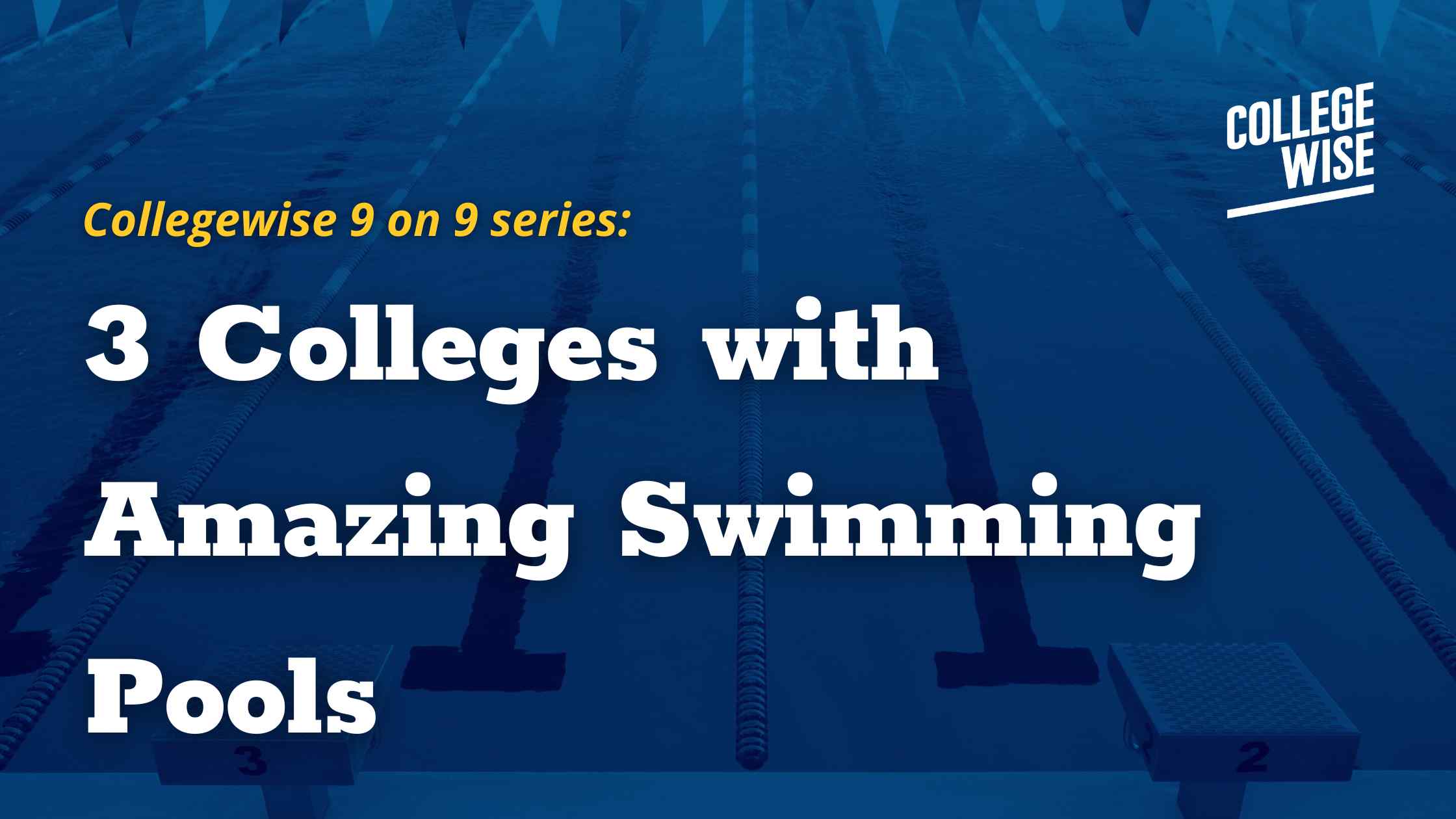
3 Colleges with Amazing Swimming Pools

3 Great Colleges for the Farmer in You
Subscribe to email updates.
- Tutoring & Test Prep
- Our Counselors
© 2024 Collegewise. All Rights Reserved. Privacy

College Preparation in 11th Grade
Use Junior Year to Create a Winning College Admissions Strategy
- Application Tips
- College Admissions Process
- College Profiles
- College Rankings
- Choosing A College
- Essay Samples & Tips
- Testing Graphs
- College Financial Aid
- Advanced Placement
- Homework Help
- Private School
- College Life
- Graduate School
- Business School
- Distance Learning
- Ph.D., English, University of Pennsylvania
- M.A., English, University of Pennsylvania
- B.S., Materials Science & Engineering and Literature, MIT
In 11th grade, the college preparation process accelerates and you need to start paying careful attention to looming deadlines and application requirements. Realize that in 11th grade you don't need to choose exactly where to apply yet, but you do need to have a plan mapped out for achieving your broad educational goals.
The 10 items in the list below will help you keep track of what's important for college admissions in your junior year.
In October, Take the PSAT
Colleges won't see your PSAT scores, but a good score on the exam can translate into thousands of dollars. Also, the exam will give you a good sense of your preparedness for the SAT. Take a look at some college profiles and see if your PSAT scores are in line with the SAT ranges listed for the schools you like. If not, you still have plenty of time to improve your test-taking skills. Be sure to read more about why the PSAT matters . Even students who don't plan on taking the SAT should take the PSAT because of the scholarship opportunities it creates.
You will also find that soon after you take the PSAT, colleges will start sending you recruitment materials via mail and email. This is because colleges rely on the College Board to identify students who might be a good match for them. Schools buy contact information from the College Board based on factors such as PSAT scores, academic interests, and geographic location.
Take Advantage of AP and Other Upper-Level Course Offerings
No piece of your college application carries more weight than your academic record . If you can take AP courses in 11th grade, do so. If you can take a course at a local college, do so. If you can study a subject in greater depth than what's required, do so. Your success in upper-level and college-level courses is a clear indicator that you have the skills to succeed in college.
Because junior year reveals the type of student you have become during high school, it will often carry more weight than freshman and sophomore years.
Keep Your Grades Up
11th grade is probably your most important year for earning high grades in challenging courses . If you had a few marginal grades in 9th or 10th grade, improvement in 11th grade shows a college that you've learned how to be a good student. Many of your senior year grades come too late to play a big role in your application, so junior year is essential. A drop in your grades in 11th grade shows a move in the wrong direction, and it will raise red flags for the college admissions folks. The strongest applications will reveal high grades in challenging courses such as AP, IB, or Honors.
Keep Going With a Foreign Language
If you find language study frustrating or difficult, it's tempting to give up on it and shop around for other classes. Don't. Not only will mastery of a language serve you well in your life, but it will also impress the college admissions folks and open up more options for you when you eventually get to college. Be sure to read more about language requirements for college applicants . While many schools may require just two or three years of a language (if any), four years will add strength to your academic record.
Assume a Leadership Role in an Extracurricular Activity
Colleges like to see that you're a band section leader, a team captain, or an event organizer. Realize that you don't need to be a prodigy to be a leader—a second-string football player or third-chair trumpet player can be a leader in fundraising or community outreach. Think about ways that you can contribute to your organization or community. Colleges are looking for future leaders, not passive bystanders.
In the Spring, take the SAT and/or ACT
Keep track of SAT registration deadlines and test dates (and ACT dates ). While not essential, it's a good idea to take the SAT or ACT in your junior year. If you don't get good scores , you can spend some time in the summer building your skills before retaking the exam in the fall. Colleges consider only your highest scores.
Even if you are applying to one of the many test-optional colleges, doing well on the SAT can prove valuable for scholarships and class placement.
Visit Colleges and Browse the Web
By the summer of your junior year, you want to begin hammering out the list of colleges to which you'll apply. Take advantage of every opportunity to visit a college campus . Browse the web to learn more about different types of colleges. Read through the brochures you receive in the spring after taking the PSAT. Try to figure out if your personality is better suited for a small college or large university .
If you can visit schools during the school year rather than during the summer, do so. You'll get a better sense of a college when you see it while in session.
In the Spring, Meet with Your Counselor and Draft a College List
Once you have some junior year grades and your PSAT scores, you'll be able to start predicting which colleges and universities will be reach schools , match schools , and safety schools . Look over the college profiles to see average acceptance rates and SAT/ACT score ranges. For now, a list of 15 or 20 schools is a good starting point. You'll want to narrow down the list before you begin applying in senior year. Meet with your guidance counselor to get feedback and suggestions on your list.
Take AP Exams as Appropriate
If you can take AP exams in your junior year, they can be a huge plus on your college application. Any 4s and 5s you earn show you are truly ready for college. Senior year APs are great for earning college credits, but they come too late to show up on your college application. Typically AP scores are self-reported on applications since they aren't a required part of the application process, but high test scores will certainly improve your chances of admission.
Make the Most of Your Summer
You'll want to visit colleges in the summer, but don't make that your entire summer plan (for one, it's not something that you can put on your college applications). Whatever your interests and passions, try to do something rewarding that taps into them. A well-spent junior summer can take many forms—employment, volunteer work, travel, summer programs at colleges, sports or music camp. If your summer plans introduce you to new experiences and make you challenge yourself, you've planned well.
- Sophomore Year and College Admissions
- College Preparation in 9th Grade
- Does the PSAT Matter? Should You Put Effort Into PSAT Preparation?
- Why AP Classes Matter
- Foreign Language Requirement for College Admissions
- What's a Good Academic Record for College Admissions?
- When and How Many Times Should You Take the SAT?
- When Should You Take the ACT?
- The Best Summer Plans for High School Students
- AP Scholar Awards: What You Should Know
- Prepare for College With High School Math
- What Does a Strong College Applicant Look Like?
- Is Your AP Test Score Good Enough?
- College Preparation in Middle School
- Month-by-Month Senior Year College Application Deadlines
- 2020 SAT Costs, Fees and Waivers

Choosing a College
When Should You Schedule Visits to Colleges?
For most students, the college visit is the most important deciding factor in the college they choose to go to. this makes planning college visits an important part of the selection process, that should be scheduled early enough in the process that you don’t feel rushed, but late enough so that your child has had some time to do some research first., how early should you begin visiting schools.
It may be beneficial to schedule one or two trips to nearby colleges while your child is in their freshman or sophomore year. This is simply to get them thinking about colleges and getting into the mode of college planning.
By starting this early your child may have an easier time narrowing down their initial list, as they begin to get a better idea of what it is they want in a college. It also allows plenty of time for you and your child to learn about any special admission requirements, or make initial contact with faculty and/ or coaches if applicable to your situation.
There is also some evidence to suggest that visiting a college early and often can actually boost your chance of admission in that college. Admissions officers will see when and how often a student has visited when researching the student and take an early visit as a good indication of the student’s serious interest. Students who express serious interest are more likely to get accepted and often receive better financial aid packages. Admissions officers are able to invest time in your student early and get a good feel for whether or not this student is a good fit.
We recommend doing the bulk of your visits when your child is in their junior year after they have already done some research into what they are looking for. It’s common for a student to “fall in love” with a school during the college tour, so you want to make sure any school you visit is one that is a good choice for your student, both academically and financially.
What Time of Year is Best?

Visiting colleges during the summer is convenient, but it doesn’t always give you the best or honest view of the college or university. It’s hard to get an accurate picture of how busy the student union becomes and how difficult it can be to walk from one part of the campus to the other between classes. Your student also won’t have an accurate feel for how he’ll interact with faculty when there’s a lot of students around.
So when should you schedule your campus visit? The best time during the week is from Monday to Thursday. The campus is busy with students going from class to class or mingling around.
The best season to visit colleges is at the beginning of the fall session . The time various from college to college and includes late-summer to the early of September. Spring time can also be ideal especially for students who plan to participate in athletics or are considering early application deadlines.
Don’t go to colleges during mid-term or final examination weeks. Those times are similar to summer, they won’t give you an accurate view of the college.
Also, don’t visit colleges during:
- Christmas week
- Thanksgiving weekend
- Spring break
- Winter break
- Reading periods
Attend a Class or Two
Visiting a class, especially in your student’s major, will give him a slice of college life. It may be helpful to attend more than one type of class such as a lecture, lab or seminar. It’ll give you and your student a chance to:
- Observe other students
- Experience attending different classes
- Listen to students’ perspectives
- Form an opinion about the college or university
Final Tips for Success
Take a camera and notebook with you . It’ll help you remember all the details of each visit. You’ll be shocked at how easy details begin to blur after visiting more than two colleges. Make a comparison sheet to record impressions you and your student have about each college.
Don’t get totally wrapped up in the pretty leaves and picturesque buildings. It is important that your child feel comfortable and enjoy their surroundings, but it is much more important that you feel confident that your sending your child to a school where they’ll get a great education for a fair price.
Go on a Virtual Tour. Some schools offer virtual tours you can check out before the actual tour to get acquainted, or after to refresh your memory. Try one here.
Begin building a college list of good matches with your student.
Leave a Reply Cancel reply
Your email address will not be published. Required fields are marked *
Subscribe to Parent Newsletter

What are your chances of acceptance?
Calculate for all schools, your chance of acceptance.
Your chancing factors
Extracurriculars.
10 Tips for Your Child’s College Visit

A campus visit is a long-standing tradition among high schoolers and an important part of the college applications journey. Offering information and insight not found in brochures, campus visits enable teens to chat with current students, eat in dining halls, visit dorms, and even attend classes. In fact, many students report that they don’t know if a college is a good fit until they set foot on the campus.
While campus visits are clearly important, families often struggle with the logistics. How many schools should your teen visit and when? How can you make out-of-town trips as affordable as possible? Read on to discover CollegeVine’s top ten tips for a successful college visit.
When Should Your Child Consider Visiting a College?
Choosing the right time for a college visit involves various considerations. Not only do you have to base decisions on your family’s schedule, but you also have to look at your student’s responsibilities with regard to coursework and extracurriculars.
So, when’s the best time to take that road trip (or flight) to an out-of-state school? It’s best to visit a school when class is in-session, since high schoolers will get a better feel of the campus atmosphere; they may also be able to meet current students and professors. Consider planning trips during the fall or spring of sophomore or junior year. Spring break is particularly convenient, because students won’t have to miss class. College spring breaks are often at a different time, so school should be in session. Whenever possible, students should visit schools before applications are due. That way, they don’t waste time or money applying to schools that they wouldn’t be excited to attend.
10 Tips for Making the Most of a College Visit
Wondering how to make the most of your teen’s campus visits? Check out CollegeVine’s tips for ensuring a successful school trip:
1. If finances are tricky, take a virtual tour, or consider diversity fly-in programs
Sometimes it just isn’t possible to visit all your child’s schools in-person, and that’s totally normal. Most families usually just visit a handful of out-of-state top choice schools and some nearby universities. For the schools you can’t make it to, consider touring them virtually. Harvard is just one of many schools that offer guided virtual tours you can take from the comfort of your living room. See spots like dormitories, classrooms, libraries, and even the dining hall. If you can visit in-person, you might even use this tool before visiting, to get a better sense of campus landmarks.
For high-achieving, underrepresented students, there are also diversity fly-in programs. Certain schools will pay for your student’s out-of-state visit (flights and all!) if they fall into this category. Students apply for these opportunities, and visits usually take place in spring of junior year, or fall of senior year. High schoolers get the chance to stay with a current student, participate in programming, and eat from the dining hall for free. See our list of popular schools that offer fly-in programs .
2. Set up travel fare alerts
I f your student plans to apply to many out-of-state schools, you can cut costs by setting up flight price trackers for the cities where their schools are located. That way, you’ll receive an email when a low or “mistake” fare pops up. Popular search engines that offer this feature include Google Flights, Secret Flying, Hopper, and Kayak.
3. Add a tour to your family vacation
Planning a family vacation this year? Consider choosing a destination near one or more of the schools your child hopes to visit. For example, if your teen is looking at several schools in California, you could schedule a family trip to Los Angeles. Hit up Disneyland and the San Diego Zoo in between trips to UCLA and USC.
4. Start with a local school
One way to ease into visits is to start with a school close to home. Touring a nearby college gives students a chance to discover what factors are most important to them, such as living on-campus or attending a school with strong athletic culture. Once your child determines what’s important to them, they can re-evaluate their college list and remove schools that don’t make the cut.
5. Get social
Students can also use social media to research colleges and further refine their lists. Encourage your child to check out the Facebook and Instagram pages for their top-choice schools. Your teen will get a better sense of campus culture and learn about school activities.
6. Talk to students
Interacting with students in-person can be helpful as well. When you do visit campuses, aim to find a group of students that shares your child’s academic or extracurricular pursuits. For example, if your teen is passionate about writing, see if they can sit it on a creative writing course or meeting of the school’s literary magazine. If you can’t make the visit, try to find current students from your town that your child might be able to chat with. It’s crazy how connected the world is; you may be able to find a current student just by asking in your circles. Your student’s high school counselor should also know if there are any alumni now attending your teen’s dream school.
7. Assess the Culture
Finding a good fit is about more than academics. If you want to get the most out of your college visits, strive to get a sense of the overall culture of the school. Do students attend sports games on weekends? Do they participate in fraternities and sororities? Is there a strong musical theater presence? Tours are great for assessing what activities and events are popular at a given institution.
8. Meet an admissions officer.
No, meeting the admissions officer won’t guarantee preferential treatment down the line. However, it does enable them to put a face to the name on your college essay, and it also shows that you’re passionate about the school. Schedule an interview if you can; if not, drop by the admissions office and introduce yourself to whoever’s working.
9. Don’t forget academics
It’s easy to get wrapped up in the fun aspects of college, like student organizations and extracurriculars. However, students should remember to pay attention to each school’s academic offerings. Try to sit in on a class, speak to a student with your prospective major, or meet a professor.
10. Take notes
If your teen is visiting multiple colleges, it’s easy for the various tours to blend together. (Which school had the big dorm rooms, again?). If you want to keep the details straight, it’s wise to take photos and jot down your impressions immediately after the trip. Additionally, experts recommend limiting college tours to two a day so the experiences don’t blur.
Does your teen want access to expert college guidance — for free? When they create their free CollegeVine account, they will find out their real admissions chances, build a best-fit school list, learn how to improve their profile, and get their questions answered by experts and peers—all for free. Encourage them to sign up for their CollegeVine account today to get a boost on their college journey.
Related CollegeVine Blog Posts

32 Questions to Ask on a College Visit
Students should feel free to ask questions during an information session or on tour.
Questions to Ask on a College Visit

Getty Images
Prospective students should conduct at least basic research to facilitate questions to ask during the information session or on tour, experts say.
Key Takeaways
- Before a campus visit, students should do basic research on the school.
- Students and their families have various opportunities to ask questions.
- No question is dumb.
College visits, whether in person or virtual, can help give prospective students a better feel of campus life.
Contrary to popular belief, however, students don’t need to have that “a-ha” moment when they eventually find the campus where they belong, says Thyra Briggs, vice president for admission and financial aid at Harvey Mudd College in California.
“I just don't think that happens for most students,” she says. “I don't want students to walk away from a visit where that didn't happen thinking, ‘Oh, this is not the place for me.’ This is a long-term relationship. It's not necessarily love at first sight. … In this age of instant gratification, I think it's an important thing to give a school a chance to affect you in a different way.”
For an in-person visit, families should prepare ahead of time by checking the weather and dressing comfortably as tours are mostly held outside.
"Leave plenty of time at an individual campus and allow yourself to enjoy the experience, be present in the moment and (don't) feel rushed because that could also skew your perception of things," says Bryan Gross, vice president for enrollment management at Hartwick College in New York.
It’s also important, experts say, to conduct at least basic research on the institution – even if it’s just looking at their social media accounts – to help facilitate questions to ask during the information session or on tour.
"We know that for some of you, this may be the first time you are going through this," Briggs says. "For others, it's a different student (going through the process) than the student you had who's older. So there’s no bad questions. ... I would hope that any college would welcome any question a student would ask.”
Here are 32 example questions, collected from college admissions and enrollment professions, that students don't always think to ask on college visits. These questions – edited for length or clarity – were provided by Briggs, Gross and Brian Lindeman, assistant vice president of admissions and financial aid at Macalester College in Minnesota.
Questions About Admissions
- Does this school consider demonstrated interest?
- Is there an opportunity for prospective students to sit in on a class to experience a real lecture?
- Are there options to receive a lunch or dinner pass at the dining hall to try the food?

Questions About Academics
- Where do students typically study?
- How does advising work?
- What are the academic strengths of this school?
- What opportunities are there for study abroad and exchange programs?
- If available, are these global programs directly run by this school – where faculty members travel with students – or are these study abroad programs outsourced to a third-party company?
- Are these study abroad experiences built into the tuition or are there additional fees to participate?
Questions About Financial Aid
- What is this school's average financial aid package?
- What is the average net cost when students enroll?
- What is the current level of funding with endowed scholarships – how much are donors contributing to scholarships?
- Do you offer merit aid ? If so, what are you looking for in a candidate?
Questions About Campus Housing and Community
- What are the housing options?
- What are the fee structures for these different options?
- Are students required to live on campus ?
- How does your campus define diversity, equity, inclusion and belonging?
Questions to Ask Your Tour Guide to Gauge Campus Life
- What surprised you about this school? What's something you didn't expect?
- What keeps you coming back to this school each year?
- Have we seen your favorite place on campus?
- What event on campus gets the biggest turnout every year?
- If you were struggling with an issue, would you know who to turn to? Who would that be?
Questions About Work and Research Opportunities
- What are the opportunities for undergraduate research on campus?
- How do those research opportunities give students valuable hands-on experiences that enhance their resumes?
- What are some specific ways this school helps students gain hands-on experience through internships ?
Questions About Student and Career Outcomes
- What is the retention rate from freshman to sophomore year?
- What is the five-year graduation rate?
- What is the job-attainment rate of graduates within six months of graduating?
- What percent of students are going on to graduate school ?
- What percent of students are intentionally taking time off post-graduation compared to those who are not able to find jobs?
- What size is the alumni network?
- How are alumni actively engaging with recent graduates to help connect them specifically to opportunities in their fields?
Searching for a college? Get our complete rankings of Best Colleges.
Unique College Campus Visits

Tags: colleges , education , campus life , college applications , students
Ask an Alum: Making the Most Out of College
You May Also Like
Federal vs. private parent student loans.
Erika Giovanetti May 9, 2024

14 Colleges With Great Food Options
Sarah Wood May 8, 2024

Colleges With Religious Affiliations
Anayat Durrani May 8, 2024

Protests Threaten Campus Graduations
Aneeta Mathur-Ashton May 6, 2024

Protesting on Campus: What to Know
Sarah Wood May 6, 2024

Lawmakers Ramp Up Response to Unrest
Aneeta Mathur-Ashton May 3, 2024

University Commencements Must Go On
Eric J. Gertler May 3, 2024

Where Astronauts Went to College
Cole Claybourn May 3, 2024

College Admitted Student Days
Jarek Rutz May 3, 2024

Universities, the Police and Protests
John J. Sloan III May 2, 2024


Complete College Visit Checklist
By Jacky Gilchrist
June 23, 2023
Choosing where to go to college is a major decision. You’ll need to decide not only which school suits your career goals and other interests, but also where you’ll feel comfortable living for four years (or longer if you attend grad school there). College visits are essential for the decision-making process. Visiting the schools on your shortlist will help you determine which one is best for you.
Plus, attending an information session and interviewing with an admissions officer during your visits are excellent ways of demonstrating your interest to the school, which may benefit your admissions chances. Use the following college visit checklist to plan your trip and get the most out of it.
Things To Do Before A College Visit
1. do a little research on colleges of interest.
The first item on your college visit checklist is to research some schools of interest. If you haven’t already, you’ll need to put together a shortlist of about five to 10 schools that you think you might like to attend and that would support your career goals. Explore their websites, review any promotional materials they send you, and talk to your high school guidance counselor about your options.
2. Choose which colleges to visit
You might not visit every college on your shortlist, especially if that list is longer. First, talk to your parents about college visits. How many visits will they be able to accommodate? What are their geographic restrictions, if any? Do you need to limit your visits to schools within driving range or is a flight or two possible? Once you know what your parameters are, you can decide which campuses to prioritize.
3. Sign up for official tours
Now that you know which campuses you’re aiming to visit, the next item on your college visit checklist is to decide when you’ll be able to get to each. Depending on geography and your school schedule, it may make sense to cluster a couple of campus visits together into one long weekend. After planning the travel logistics with your parents, visit the school websites and sign up for official tours on those dates. It’s also a good idea to reach out to the admissions offices and ask about scheduling interviews on those dates.
4. Write a list of questions
Next, develop a list of questions to ask on your college tours and during your interviews. You might want to ask about academics and specific departments, extracurriculars, campus life, and admissions. For a list of good questions to ask, check out this blog.
5. Research the town
Your campus will be your home away from home for four years, so it’s important to make sure you’ll be happy there. However, you’ll definitely want to venture off campus, as well, so spend some time researching the town ahead of your visit. You’ll want to explore points of interest, do some touristy things, and check out the local restaurants. You’ll also want to know if there’s a supermarket close to campus, nearby healthcare (hospitals and pharmacies), convenient transportation (train station, subway, bus, airports, etc.), and, if you have a car, a mechanic close to campus.
What to Do During Your College Visit
6. dress in office casual attire.
If you have an interview on campus, you should wear or bring business casual clothing, such as a shirt and tie with slacks or a skirt and blouse. Otherwise, you can dress a little more informally. Khaki pants and a polo shirt or a sundress are both appropriate outfits. Try not to dress too casually and avoid showing too much skin.
7. Take the official tour
Although it’s also a good idea to wander around on your own, you should also plan on taking the official tour. Your tour guide will almost certainly be a current student. They will show you all of the major points of interest, such as a dormitory, academic building, library, student center, and dining halls.
Do note that the official tour will likely not include older or outdated parts of campus; the college wants to put their best foot forward, just as you do. It may also not include all of the parts of the campus that you want to see, such as the academic building for your intended major, sports facilities, and so on. You can explore those areas after the official tour.
8. Pay attention to where the students are
As long as you aren’t visiting the campus during the summer or another school break, there should be plenty of college students roaming around. Making a note of where the students are can tell you a lot about the campus culture. If the library is jam-packed, for example, it’s a safe bet that the school prioritizes academics. Similarly, seeing a lot of students relaxing in the sunshine on the quad could indicate that the school is relatively laid back.
9. Explore the campus beyond the tour
You’ll definitely want to check out as much of the campus as you have time for. This is not the best time to rush things; take your time strolling around and soak up the atmosphere. Don’t forget to take plenty of notes about your first impressions. In addition, take pictures of points of interest to refresh your memory later. You should also take pictures of yourself smiling in front of various buildings or other features (see the section on social media below).
10. Talk to lots of people, not just your tour guide
Your official tour guide will give you the company line, so to speak. While that can be helpful, it’s also a good idea to talk to other people around campus to get the less polished view of the school. Try to talk to students, sports team members, club members, and so on.
11. Explore your intended major
If you already know what you want to major in, you should definitely take the time to explore that particular academic building. The condition of the building itself, its available technology, and its size can give you a clue as to how much that major is valued at that school and what sort of resources/programs you might have available to you.
12. Check the school bulletin boards
You’ll likely find bulletin boards scattered around, particularly in the student center. Snap some pictures to look at later. The notices posted there can give you a clue about the social, political, or religious pulse of the campus community.
13. Check the classrooms
Colleges generally have a mix of large lecture halls and smaller classrooms, perhaps set up conference room-style. Does the school tend to have tons of lecture halls and few smaller classrooms that support greater interaction? That can tell you something about the academics there. Similarly, make a note of the technology available in the classrooms.
14. Check the dorms that aren’t on the tour
The tour guide will show you the newest, snazziest-looking dorm on campus. Ask if you can see one of the older ones to get a sense of where you might actually be living if you don’t land a spot in a newer dorm.
15. Be respectful to others
This goes without saying, but it’s definitely important to be on your best behavior while on your college visit. Treat others as you would want to be treated.
16. Keep a record of your visit
You’ll want to take plenty of notes and snap lots of pictures during each of your college visits. This will help jog your memory later as you spend some time reflecting on your first impressions of the schools.
17. Read a student newspaper
Student newspapers can give you a clue as to the pulse of the school community. Is there a vibrant arts scene? Are there regular activities and events? Do the other students seem engaged in campus life?
18. Try the food in the cafeteria
This item on your to-do list will be especially important if you have any food allergies or sensitivities. If so, make an effort to speak to a few of the cafeteria workers about the menu and whether there are plenty of choices available to you.
19. Visit the bookstore
The campus bookstore will be where you’ll purchase your textbooks along with any other classroom supplies you may need. Does it appear well-stocked? Are workers readily available to help students if they need it?
20. Look into clubs and organizations
On-campus clubs and other activities are the lifeblood of a school’s social scene. Does the school offer a bunch that look interesting to you? Can you attend a club activity while you’re there?
21. Ask about job opportunities for students
Higher education institutions customarily offer student employment opportunities. This may be available as part of a financial aid package. Although you won’t be applying just yet, it never hurts to find out what sort of opportunities could be available to you. Consider asking your tour guide which jobs are the most popular, and therefore, the hardest to get.
22. Find the library and ask about its resources
Although it might seem inconceivable, not everything is findable on Google. A robust campus library will be essential for your success in college. Take plenty of time to explore the library and don’t hesitate to chat with a librarian about its resources. Is there a media room? Does it offer archives and special collections? Are there small meeting rooms available for student study groups?
What to Do After Your College Visit
23. reflect on your visit and adjust your shortlist accordingly.
Your college visit checklist isn’t quite complete yet! There are also some steps you should take after your visit. Spend some time thinking about the experience. What did you like and dislike about the school? Do you have any concerns or follow-up questions? Consider whether you should rank the school higher on your shortlist or perhaps downgrade or eliminate it.
24. Send thank you notes
Even if you aren’t sure whether the school is the right one for you, it’s always a good idea to send thank you notes. Send a thank you email or written note to the admissions officers and other reps you may have met. This will help you make a good impression and it’s always nice to be polite.
25. Reach out with follow-up questions
If you do have any follow-up questions, you can include them in your thank you emails to the admissions officers. Even if you didn’t meet with an admissions officer during the visit, you can send a quick, polite email to the office with your questions. Mention that you recently visited the school and then type a brief list of questions.
26. Post college visit pics to your social media, if applicable
You might already know that hiring managers often check job applicants’ social media profiles before deciding whether to extend a job offer. But did you know that admissions officers might do this, as well? It may be beneficial for you to post happy pictures of you on campus and mention how much you enjoyed the experience. This demonstrates your interest in the school—admissions staff like to see applicants who engage with the school.
Why is it important to plan a campus visit?
It’s hard to know if you’ll like a car enough to buy it before you test drive it. College campus visits are similar. They serve as a test drive, allowing you to get a feel for the vibe of the campus and the rigor of the academics. Up to this point in your life, choosing a college will be one of the most significant decisions you’ll make. It’s important to be happy with your choice.
Are college tours worth it?
Our experts have worked with thousands of college-bound students over the years. Many of them have mentioned that campus visits played a major role in their decision. College tours are absolutely worth the time and expense because you’ll be able to make a decision more confidently.
What should you bring to a college visit?
You don’t need to pack as if you’re going on a week-long hiking excursion, but you should bring a few items to help you get the most out of the experience. You’ll want your phone (to take pictures), a notepad and a couple of pens (to take notes), and a prepared list of questions and places that you’d like to visit. If you’ll be doing an interview on campus, remember to dress appropriately. (And don’t forget to bring a copy of this college visit checklist so you get the most out of your campus trip.)
What month is best for college visits?
There’s no universal right or wrong answer. However, it’s often preferable to visit during a semester so that you can get a sense of what the campus is like when all of the students are there. Additionally, if you’re from a warm climate, visiting a cold climate school during the winter can be a good way to gauge whether you can handle the cold weather. However, if you’re unable to visit during a semester, take advantage of spring break or summer vacation to plan your college visits. Be sure to check for available tours before making any plans.
What should you not ask on a college tour?
There really aren’t any dumb questions. However, you should research the school thoroughly online first. Try to avoid asking questions that can be easily answered with a little online research. In addition, it’s best not to ask your tour guide personal questions or to request special favors.
What can I expect on a college visit?
College visits generally include structured and unstructured components. You’ll almost always have an information session and a campus tour, and perhaps an interview. At some colleges, you may also be able to arrange to attend a class, club meeting, or sports practice, or meet with a professor. You’ll also have some unscheduled time, during which you can explore the campus on your own and check out the surrounding community.
Need help preparing for college?
At KD College Prep, our mission is to help students get into the colleges of their dreams through test prep programs (including online learning options) and college counseling services. Schedule a free consultation to get started. We can’t wait to learn more about your goals!
Jacky Gilchrist is a blog writer for KD College Prep.
WE’RE ALWAYS READY TO CHAT
Reach out to schedule your free consultation today.
- Student Full Name *
- Parent Full Name *
- Phone Number *
- Expected Graduation Year *
- I'm interested in: * Select One Test Prep College Counseling Both
- Choose a Location * Choose a Campus Coppell (In-Person or Online) Flower Mound (In-Person or Online) Frisco (In-Person or Online) Plano (In-Person or Online) Virtual (Outside of the DFW Area)
TESTIMONIALS

“When I first started KD, I had zero SAT® experience. The summer lessons helped me build my foundation and I really started to see a boost in my scores after taking numerous workshops throughout the school year to build on that foundation. Without KD, I don't think I would have the motivation to consistently study for the SAT (test). In the beginning, every time I saw a KD email, I'd remember to sign up for a workshop and practice test for the weekend. Then, it became a habit to go to KD on Saturday mornings. Going to these workshops and taking practice tests consistently helped me get exposed to every question on the SAT (test) for math. Therefore, I was hardly ever surprised to... Read more...
“When I first started KD, I had zero SAT® experience. The summer lessons helped me build my foundation and I really started to see a boost in my scores after taking numerous workshops throughout the school year to build on that... Read more...
Meenakshi S. – Class of 2024

“My wife and I wanted to thank you profusely for working with (our daughter). She picked Texas A&M, and we are all delighted with the decision. We have visited the college a couple of times and feel it was the right choice for us... We appreciate your patience with her. She could not have gotten here without your help.”
“My wife and I wanted to thank you profusely for working with (our daughter). She picked Texas A&M, and we are all delighted with the decision. We have visited the college a couple of times and feel it was the right... Read more...
Arun K. – Daughter, Class of 2023

“KD College Prep has offered me multiple resources, makes the effort to craft comprehensive courses, and personalizes instruction that is adjustable to my schedule.”
Quynh T. – Class of 2023
“Ethan is a National Merit Finalist, so he received scholarship opportunities from a number of universities based on his National Merit status, including the University of Houston, where he will be attending tuition-free. He also scored an almost perfect SAT® score (1560), thanks in part to his preparation with KD College Prep.”
“Ethan is a National Merit Finalist, so he received scholarship opportunities from a number of universities based on his National Merit status, including the University of Houston, where he will be attending tuition-free. He also scored an almost perfect SAT® score... Read more...
C.J. S. – Son, Class of 2023

“This was perfect for our son! He needed the structure to get organized to study and did better than expected!”
Hillary B. – Son, Class of 2023
“KD has been very useful for me and has helped me become a better test taker. I don’t think I could’ve gotten the score I got without the countless hours I put in attending workshops, taking tests, and attending reviews.”
Samarth S. – Class of 2023

“Taking KD College Prep has been one of my best choices in high school! All of the instructors definitely know their stuff and teach an extremely useful curriculum in an engaging and efficient manner. I recommend KD to anyone looking to learn more or maximize their scores!”
“Taking KD College Prep has been one of my best choices in high school! All of the instructors definitely know their stuff and teach an extremely useful curriculum in an engaging and efficient manner. I recommend KD to anyone looking to... Read more...
Preston King – Class of 2023
“Overall, it was a good experience. It instilled the discipline to focus on test preparation through workshops and assignments. The review of each test was also very helpful.”
Sajitha N. – Daughter, Class of 2023
“Honestly, was really, really solid. Doing the program the summer before junior year — and I only did the one — actually got me a lot of experience and review of technical skills needed for the SAT® test. I only had to do it once because I got to relearn those pesky algebra skills that I forgot through the program.”
“Honestly, was really, really solid. Doing the program the summer before junior year — and I only did the one — actually got me a lot of experience and review of technical skills needed for the SAT®... Read more...
Katya G. – Class of 2023

“Working with KD was incredible! I truly enjoyed how experienced the counselors were and how deeply they cared about their students. I would recommend KD and especially their college prep plan to everyone who is looking to get professional college admissions advice!”
“Working with KD was incredible! I truly enjoyed how experienced the counselors were and how deeply they cared about their students. I would recommend KD and especially their college prep plan to everyone who is looking to get professional college admissions... Read more...
Ananya A. – Class of 2023
“Our son, Joseph, is our fifth child to go through the KD College Prep program and our fourth National Merit Finalist. He had another test prep program available to him through his private high school but chose KD because he felt like it made the biggest difference in his scores in the least amount of time. He found the program easy to follow and adapt to his strengths and weaknesses. As parents, we cannot say enough good things about the KD program and would recommend it to anyone looking to improve their scores and earn scholarship dollars!”
“Our son, Joseph, is our fifth child to go through the KD College Prep program and our fourth National Merit Finalist. He had another test prep program available to him through his private high school but chose KD because he felt... Read more...
Ellyn A. – Parent of 5 KD Students

“My daughter completed your program in the Plano location. In the fall, she is headed to Colorado School of Mines to study engineering. I asked her if KD had helped her with the SAT® and ACT® tests. She said they helped her know how to manage her time while taking the test as that is a huge aspect to the test.”
“My daughter completed your program in the Plano location. In the fall, she is headed to Colorado School of Mines to study engineering. I asked her if KD had helped her with the SAT® and ACT® tests. She said they helped... Read more...
Julie M. – Daughter, Class of 2022

“(I wanted) help with writing essays and getting into my dream colleges. (I was most concerned with) keeping up with everything I have to do and meeting all the deadlines. The constant and honest feedback about my essays regardless is what I really appreciated. There was a time that writing essays just clicked, and it was much easier after that.”
“(I wanted) help with writing essays and getting into my dream colleges. (I was most concerned with) keeping up with everything I have to do and meeting all the deadlines. The constant and honest feedback about my essays regardless is what... Read more...
Neha C. – Class of 2022
“It’s hard to believe we are finally done at KD Prep with our three children. We are incredibly grateful to you for all of your support over the years, which undoubtedly helped each of our children realize their college dreams. All three were accepted to colleges with single digit admission rates. Our eldest was selected as a National Merit® Finalist and was able to apply to colleges with a perfect SAT® score. Our other two were both named National African American Recognition Scholars and National Merit Commended Scholar. One of them applied to college in 2020 with an SAT score of 1520 (780 math and 740 verbal) and the youngest scored 1500 on the October 2021 SAT test (720 verbal and 780 math). Our... Read more...
“It’s hard to believe we are finally done at KD Prep with our three children. We are incredibly grateful to you for all of your support over the years, which undoubtedly helped each of our children realize their college dreams. All... Read more...
Nike A. – Parent of 3 KD Students
“Obviously SAT® test prep was NOT fun. The experience was difficult and exhausting, but learning through KD definitely made the experience much less stressful and definitely easier. It's a great system with tons of resources all aimed to give you what you need and more to reach whatever score range you set as your goal (I was able to get a 1540). My favorite part though, specifically with the Coppell campus, was the people! Everyone was so incredibly nice and always in impossibly good moods. It was a great environment to learn and improve in!”
“Obviously SAT® test prep was NOT fun. The experience was difficult and exhausting, but learning through KD definitely made the experience much less stressful and definitely easier. It's a great system with tons of resources all aimed to give you what... Read more...
Alex N. – Class of 2023

“I want to thank KD College Prep for helping me get the score I needed to receive over $464,000 in scholarships, including two full rides. I started the program the summer going into my junior year. I had an excellent GPA but struggled on standardized tests. Taking the test prep classes throughout junior year and taking practice tests got me more prepared each time I took the test. I achieved my best score the summer going into my senior year. That score allowed me to apply to my top schools as soon as early decision opened. I am so grateful to Karen Dillard and the extra practice and proctored exams! My parents are grateful too—for the small investment they got a great return.”
“I want to thank KD College Prep for helping me get the score I needed to receive over $464,000 in scholarships, including two full rides. I started the program the summer going into my junior year. I had an excellent GPA... Read more...
Saadia P. – Class of 2022

“I really enjoyed KD because the teachers helped me look at the SAT® test in a whole new angle. I really began analyzing the test and learned how to work math and reading problems in a smarter way, which was really helpful. I also really appreciated all the varied practice and detailed breakdowns from instructors, helping me see not just what answer was correct but why those answers were correct.”
“I really enjoyed KD because the teachers helped me look at the SAT® test in a whole new angle. I really began analyzing the test and learned how to work math and reading problems in a smarter way, which was really... Read more...
Pranathi P. – Class of 2022

“KD had a very streamlined process of learning the ins and outs of the reading and grammar part of the SAT® test as well as a very well-structured mathematics process that went through the subjects of algebra, geometry, and pre-calculus in depth. Another great part of the KD experience was the wonderful staff giving me so many useful tips and strategies for the areas that I was specifically struggling with. The staff understands students have different strengths and weaknesses, and the fact that they tailor the info they give to each student is very useful. Overall, KD has helped me not only with SAT preparation but also with my normal school work.”
“KD had a very streamlined process of learning the ins and outs of the reading and grammar part of the SAT® test as well as a very well-structured mathematics process that went through the subjects of algebra, geometry, and pre-calculus in... Read more...
Armaan C. – Class of 2023
“I am very grateful that KD was able to offer so many resources and guides for the SAT® and PSAT tests. They really helped me get a good grasp on the types of questions that the SAT exam tested on, and I was able to get a really good score the first time I took it! Once again, thank you KD, and I would recommend it to anyone who is looking to earn a high SAT score.”
“I am very grateful that KD was able to offer so many resources and guides for the SAT® and PSAT tests. They really helped me get a good grasp on the types of questions that the SAT exam tested on, and... Read more...
Sri Vamsi Krishna Putti – Class of 2023, Frisco ISD
“My husband and I are so impressed with your course and the quality of guidance that you provide. It feels like you really want our son to succeed. Thank you!”
Debra H. – Son, Class of 2023

“KD taught me so many useful strategies for the SAT® & PSAT/NMSQT® tests. They helped me improve my SAT score by over 400 points, and I got done with the SAT test at the beginning of 11th grade! I would recommend KD to anyone who wants a highly competitive SAT score. ”
“KD taught me so many useful strategies for the SAT® & PSAT/NMSQT® tests. They helped me improve my SAT score by over 400 points, and I got done with the SAT test... Read more...
Praneel S. – Class of 2023

“My time and experiences at KD College Prep have efficiently guided and prepared me for my future educational career as a college student. Not only did KD help me with college entrance exams but also provided numerous informational seminars that helped me with the various steps required for college admissions. At KD I enjoyed learning from amazing teachers, who cared for each of their students individually and were ready to help wherever it was needed. Being a student at KD has also helped me figure out which learning techniques work best for me. The opportunity to engage in different learning methods such as small group interactive learning, larger group discussions, or individual practice are all ways that helped me come up with a learning... Read more...
“My time and experiences at KD College Prep have efficiently guided and prepared me for my future educational career as a college student. Not only did KD help me with college entrance exams but also provided numerous informational seminars that helped... Read more...
Tanisha P. – Class of 2020
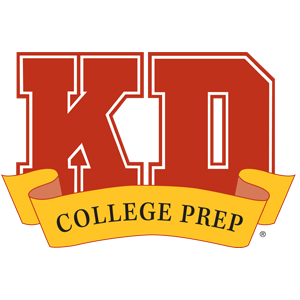
“ My feedback can only be positive, given how much you helped me get ahead with my application process. I really appreciated how much work both of you put into helping me write the best essay possible, especially reviewing my essays twice to polish them completely. In addition, I have noticed that writing my resume has released a lot of stress off my shoulder when it comes to making sure I have all the things necessary to apply to schools. ”
“ My feedback can only be positive, given how much you helped me get ahead with my application process. I really appreciated how much work both of you put into... Read more...
Claudia A. – Class of 2020

“My favorite things about KD were the mirroring it had to actual test questions, the availability, and the relationships you built with all the teachers and advisors who made the process of learning easier. I think that after you started going to a good amount of classes and the workshops, you knew every teacher, and they were always available to answer any questions that you had...Everyone was just so welcoming and made learning more engaging for the students, especially with the workshops. All of had their own unique style of teaching which never made a class boring.”
“My favorite things about KD were the mirroring it had to actual test questions, the availability, and the relationships you built with all the teachers and advisors who made the process of... Read more...
Rishab P. – Class of 2021
“I want to thank both of you so very much for making this dream come true. When I first came to KD, I wanted to get a score of 1520 or above... So many people told me it would be impossible to reach my desired score. After months of using KD's methods my scores definitely improved but hovered around 1350—still not near the score I needed but closer. After finally working with both of you during one on ones, my scores started to see heavy improvement and while I didn't get a score of 1520 or above as a single score, I got it as a superscore ... Read more...
“I want to thank both of you so very much for making this dream come true. When I first came to KD, I wanted to get a score of 1520 or... Read more...
David P. – Class of 2022
“It takes a village to raise a child—this is so true. KD College Prep staff have been nothing but uplifting to my child and to us parents through their eager attitudes to assist, in-depth guidance and unparalleled wisdom. I am in awe at the consistent level of professionalism yet genuine concern for each and every person that walks through their doors. Thank you KD staff for being great mentors for our children!”
“It takes a village to raise a child—this is so true. KD College Prep staff have been nothing but uplifting to my child and to us parents through their eager attitudes to assist, in-depth guidance and unparalleled wisdom. I am in... Read more...
Gloria D. – Daughter, Class of 2021
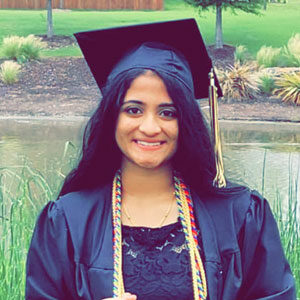
“I attended KD for the last 3 years, and I was blessed with the opportunity to take the SAT ® test one last time last month. I got a 1430 on the test. I wanted to take the time to say I have finished college applications, and I would love to thank all the teachers and aides at KD for giving me the score that I got on the test. Without the extra practice, I wouldn't have been able to get through to the score I got. These past 3 years went by so fast, and it is so fun to look back at where I started and how much I have come out with flying colors. Thank you so much!”
“I attended KD for the last 3 years, and I was blessed with the opportunity to take the SAT ® test one last time last month. I got a 1430 on the test. I wanted to take the time to say I... Read more...
Kareena A. – Class of 2021

“I just wanted to say thank you to KD for all the help and support you’ve given over the past couple years! I was able to get the scores I wanted for the PSAT, SAT ® , and ACT ® tests. The resources were very helpful, and the individualized assistance I received from teachers were what really supported my learning. Special thanks to Ms. Barwick and Mr. Hoffman!”
“I just wanted to say thank you to KD for all the help and support you’ve given over the past couple years! I was able to get the scores I wanted for the PSAT, SAT ® , and ACT ® tests. The resources were... Read more...
Advika R. – Class of 2022

“I shifted toward taking practice tests and going to workshops because I felt those were the best ways to apply the concepts (I was) learning in class. I started applying the tips and tricks that the teachers were showing me in class. In conjunction, those two things helped me raise my score a lot because I was not a math kid before KD or high school. The repetition and being able to practice in a non-stressful environment and simulating that testing experience is something that was very beneficial for me... “The college counseling team was super patient and honest about the work I was submitting. I know for a lot of kids, it’s hard to articulate who you are through 250-300 words. It was definitely... Read more...
“I shifted toward taking practice tests and going to workshops because I felt those were the best ways to apply the concepts (I was) learning in class. I started applying the tips and tricks that the teachers were showing me in... Read more...
Blaine W. – Class of 2021

“Both of my sons have been guided by KD College Prep counselor Steve Peifer on their journey to finding the right college for them, and we could not have had a better experience and outcome. My oldest son is now a rising junior at the University of Miami, and my youngest son is an incoming freshman at Vanderbilt University. Steve’s help in navigating the complicated college landscape and finding the BEST FIT for my two sons is what has made this resource invaluable. “What made the biggest difference for my two sons was the depth and breadth of knowledge Steve has of the many universities and colleges in the U.S. First, by getting to know my kids on a one-on-one basis, he was able to... Read more...
“Both of my sons have been guided by KD College Prep counselor Steve Peifer on their journey to finding the right college for them, and we could not have had a better experience and outcome. My oldest son is now a... Read more...
Julio M. – Parent
“My daughter loved the program—the program materials and the teachers both online and in person. She participated in a year of online and a year of in person. It was incredible enrichment and helped her keep her skills sharp over the summer. She liked being challenged academically, and she loved taking classes with high school students who were focused on their college goals. These students were also excellent role models! The lessons were especially important during the pandemic when it wasn’t a typical middle school experience.”
“My daughter loved the program—the program materials and the teachers both online and in person. She participated in a year of online and a year of in person. It was incredible enrichment and helped her keep her skills sharp over the... Read more...
Beth L. – Advanced Start™ Parent

“I wanted to say thank you to all of the teachers and directors at KD for helping me get a great score on the SAT ® test. I started with a 1250 on the first KD test I took, and I got a 1530 on the December 5th SAT test. KD played a huge role in this, and I just wanted to say thanks to everyone there for helping me achieve this.”
“I wanted to say thank you to all of the teachers and directors at KD for helping me get a great score on the SAT ® test. I started with a 1250 on the first KD test I took, and I got... Read more...
Vyom S. – Class of 2022
"Our twin 16-year-old boys used KD College Prep to study/practice for the PSAT test, and we believe the classes and coaching were invaluable. Very professional and concise. Worth every penny!"
Jerry – Sons, Class of 2022

“I'm writing to thank the KD team for all the help and guidance over the last couple of years! All the resources provided were very useful to me and helped me achieve the scores I was aiming for on the PSAT, SAT ® , and ACT ® tests (1520, 1580, and 34). I really appreciate everyone's willingness to be flexible and accommodate my requests!”
“I'm writing to thank the KD team for all the help and guidance over the last couple of years! All the resources provided were very useful to me and helped me achieve the scores I was aiming for on the PSAT,... Read more...
Mithra A. – Class of 2022

"The resources that KD offers have greatly prepared me for the college admissions process. Without KD, I would not have been this prepared and confident... I am a rising senior, and I ended up receiving a 1570 on my SAT ® test (third time) and a 35 on my ACT® test (first time). I remember the first ever practice test I took for the SAT test was a 1230 (about 1.5 yrs ago) and the first ever practice test I took for the ACT test was a 31 or 32 (about 6 months ago)."
"The resources that KD offers have greatly prepared me for the college admissions process. Without KD, I would not have been this prepared and confident... I am a rising senior, and I ended up receiving a 1570 on my SAT ® test... Read more...
Elise P. – Class of 2022
“I want to thank KD College Prep for helping both of my kids over the last years reach successful outcomes on their SAT ® and ACT ® scores, which helped them get into great colleges. I found the college prep class for parents very informative and helpful during the process as well. My son (Jacob) graduated in 2018 and got a 32 on the ACT test. got accepted into Texas A&M but chose Baylor for Health Sciences. My daughter (Morgan) graduated in 2020 and got a 1450 on the SAT test and a 32 on the ACT test. got into an Ivy League school (Cornell) for Engineering. Both my kids say that they apply the test taking skills they learned at KD Prep to... Read more...
“I want to thank KD College Prep for helping both of my kids over the last years reach successful outcomes on their SAT ® and ACT ® scores, which helped them get into great colleges. I found the college prep class for parents... Read more...
Jon D. – Parent

“Coming into this whole process, I had absolutely no idea what anything was, and your help was invaluable—your encouraging words, strategic advice, and wholesome stories and jokes really got me through a stressful time! I'm still on the waitlist at Harvard and other schools, but I've really started to immerse into the Emory culture, especially their debate team. Not having to pay for college and still attend a private institution is really a dream come true, and it wouldn't be possible if it were not for you.”
“Coming into this whole process, I had absolutely no idea what anything was, and your help was invaluable—your encouraging words, strategic advice, and wholesome stories and jokes really got me through a stressful time! I'm still on the waitlist at Harvard... Read more...
Shreyas R. – Class of 2020

“The most beneficial guidance I received during my College Counseling experience was being taught that it's completely ok to not know what I want to do with the rest of my life at 17/18 years old. Steve told me that a good school will help me find my path. Also, Steve's knowledge about what colleges were wanting to see in potential admissions candidates was a huge help... “There was not one specific beneficial moment or turning point in my time working with Steve, there were many. He encouraged me during the entire application process and brought to my attention many colleges I wouldn't have considered or heard about without his help.”
“The most beneficial guidance I received during my College Counseling experience was being taught that it's completely ok to not know what I want to do with the rest of my life at 17/18 years old. Steve told me that a... Read more...
Jake W. – Class of 2020
"I'm very happy my daughter chose KD as her learning partner to achieve her goals. All the experiences with KD and the Directors there are fabulous. My daughter has improved significantly."
Zarni, Daughter – Class of 2021

"I took KD classes the summer before my junior year, and I was finished with my SAT ® test by December...The test prep classes also helped me earn the award of National Merit ® Finalist."
Claire I. – Class of 2020
"It's been super helpful, and I've noticed my scores go up both on my SAT ® /ACT ® scores as well as test scores in school... Overall, I believe this to be the best college prep that money can buy."
Gopi C. – Class of 2021

"KD helped me come up with a game plan for the colleges I wanted to attend, as well as any backups, and how to manage my time during this stressful period. They helped to ease the stress and made sure that I would be successful in whichever college I picked, and I am eternally grateful for all their help and hard work!"
"KD helped me come up with a game plan for the colleges I wanted to attend, as well as any backups, and how to manage my time during this stressful period. They helped to ease the stress and made... Read more...
Omar S. – Class of 2020
"My initial goals when I first started working with the KD Counseling crew was to compile a list of colleges that I would be somewhat interested in attending and fit my career goals. I think that this step I was by far the most concerned about. I didn’t know how exactly I should go about choosing which places to apply to and if I were to be accepted, if they would fit me. The team did a wonderful job considering my likes and dislikes and helped me compile a list of colleges that suited my tastes and would further my academic career. "After this integral first step, my focus turned towards time management and writing quality essays that would stand out to colleges. I got... Read more...
"My initial goals when I first started working with the KD Counseling crew was to compile a list of colleges that I would be somewhat interested in attending and fit my career goals. I think that this step I was by... Read more...
Nina H. – Class of 2020
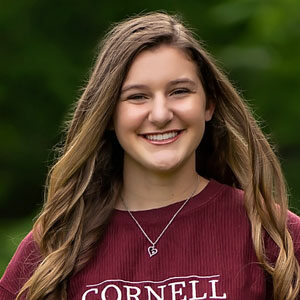
"I was thankful for all the help I received from KD in preparing for my SAT ® and ACT ® exams. The workshops they offered, as well as the practice exams, gave me the tools I needed to do my very best."
Morgan D. – Class of 2020
"KDCP is a must for students wanting to stay a step ahead of the game for getting into college. My son has gained huge insight from the ACT ® /SAT ® practice workshops, practice tests, and essay class."
Tiffany – Son, Class of 2021
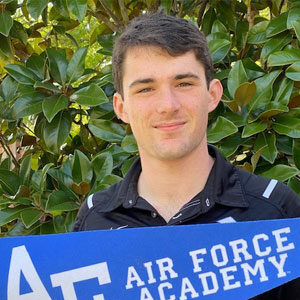
"KD helped to increase the efficiencies of how I took the national exams. I was also able to implement these efficiencies in my daily school studies within the IB program at PESH. I would (and have) recommend KD to those students wanting an edge on their national test scores!"
"KD helped to increase the efficiencies of how I took the national exams. I was also able to implement these efficiencies in my daily school studies within the IB program at PESH. I would (and have) recommend KD to those students... Read more...
Daniel J. – Class of 2020
"Not only have I been able to significantly improve my test scores, I have learned a tremendous amount of information about the college application process due to complimentary events that KD offers."
Sam H. – Class of 2020

"I came to KD the summer before my senior year with only my determination and big goals! KD provided me with the resources necessary to improve my test score to increase my chances at my dream school, Notre Dame, with the help from amazing teachers and staff. I am so grateful for KD!"
"I came to KD the summer before my senior year with only my determination and big goals! KD provided me with the resources necessary to improve my test score to increase my chances at my dream school, Notre Dame, with the... Read more...
Matt K. – Class of 2020
"I started classes at KD the summer before 9th grade. I...made a perfect score on the PSAT (earning the National Merit ® scholarship) and, after taking the SAT ® test only once (a relief!), scored a 1590/1600."
Thomas D. – Class of 2019

"In just one year, I was able to raise my score by 300 points and get into my dream school."
Piper F. – Class of 2020
"Having our recent GHS graduate attend KD was life changing. It provided our son with choices and opportunities that he might not have had otherwise."
Kathy – Son attends Mizzou

“I came to KD College Prep after already using another tutoring service which we were not seeing results with. Due to time constraints, the traditional classes were not going to be feasible for my daughter. They took the time to figure out a personal plan that would work for her and were always available for our questions and helping her reach her goals. Every employee from the managers to the students working at their locations are top notch.”
“I came to KD College Prep after already using another tutoring service which we were not seeing results with. Due to time constraints, the traditional classes were not going to be feasible for my daughter. They took the time to figure... Read more...
Tracy – Daughter, Class of 2020
"The KD College Prep course not only provided test practice but also motivated her to work hard for her college applications. It gave her the confidence to dream big!"
Prema – Daughter attends Rice

Junior Year in High School: Your Go-to College Planning Roadmap
Find your degree.

It’s your junior year of high school. This is the crossroads where future paths start taking shape—where college planning kicks into high gear. If you’re thinking about your future and what you need to do to get ready for college, we’re here to help. Think of this post as your personal map to help guide you through the maze of college planning in your junior year of high school .
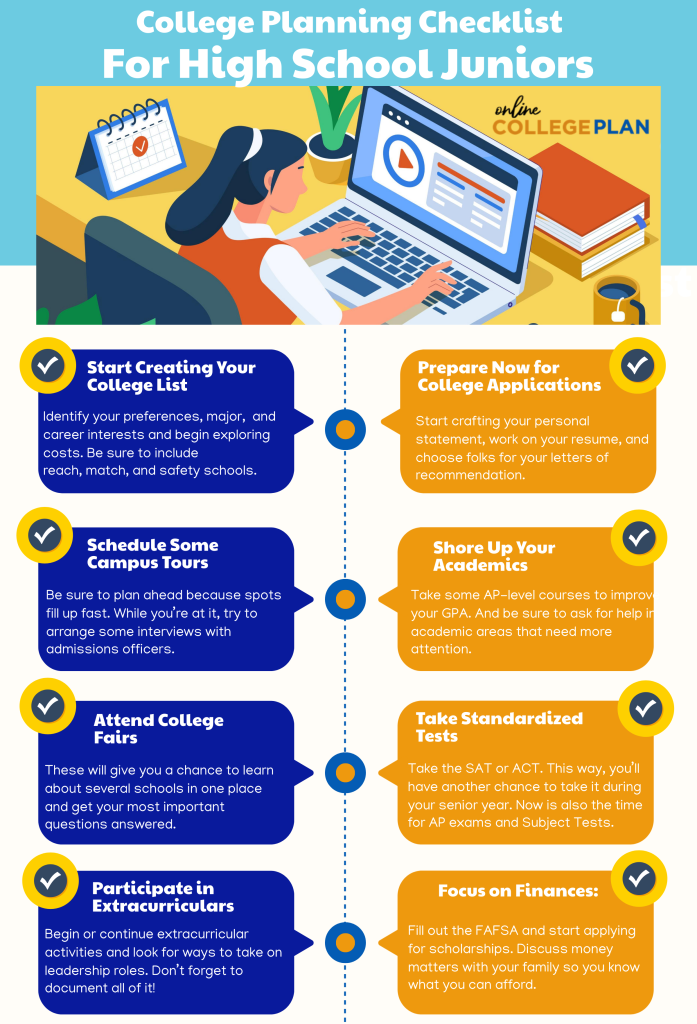
Related Resource: Senior Year College Prep: An Easy Guide to Success
Table of Contents
First Things First: Crafting Your College List
If you haven’t already, it’s time to create a college list. You want to identify reach, match, and safety schools. What does that mean? Think of it like aiming for a trio of baskets – “reach” schools are like shooting a three-pointer. They aren’t impossible, but they will need some serious game. Then there are the “match” schools, where you can lay up comfortably because they fit your stats pretty well. Lastly, you have “safety” schools; these are your free throws, where getting in is almost a sure shot.

Identify Your College Preferences
When you picture yourself going to college, what does it look like? Do you envision a big city campus with lots of bustle and activity? Or do you see yourself at a small college surrounded by nature? Location, size, and environment all come into play. Even if you plan to attend college online, you’ll still want to consider factors like campus culture, student services, and the overall vibe. Check out each college’s website, social media pages, and student reviews to get a better feel for things.
Consider Your Major and Career Interests
Another high-priority factor to consider when putting your college list together is your major. You’ll want to look for schools with programs that closely match your career goals and interests. Scope the curriculum and content of each program. For example, some schools offer internships and study-abroad programs. If hands-on learning is your vibe, such perks might interest you.
Start Exploring Costs
You wouldn’t buy something without checking its price tag first, would you? The same goes for picking colleges. Luckily, most have net price calculators online that predict roughly how much each will cost after factoring in potential aid packages. You can check these out before you even apply. We’ll talk more about money later on.
Key Takeaway: When you’re whipping up your list of colleges, mix in some dream schools, ones that feel just right, and some easy-peasy options. Also, consider the location, environment, and overall culture of the schools you’re eyeing. Finally, be sure they offer programs that match with what you’re into, and figure out how much cash you’ll need to shell out. That way, your college search is gonna be on point.
Diving Into Campus Visits
Visiting college campuses is something you can do at any point in your high school journey. But if you haven’t done it by Junior Year, it’s time to get a move on. Spending time on campus will give you the inside scoop on where you might be spending the next few years! Here are some tips for planning college visits:

Schedule Campus Tours
Most schools offer campus tours that can be scheduled online or by phone. You’ll want to schedule them early because spots fill up fast during busy times. Pick a date and time that works best for you (and your parents). And if you’re considering several colleges in one area, why not pack them into one epic day?
Interview with Admissions Officers
Some colleges will let you interview with an admissions officer during your visit. This is a great way to demonstrate your interest in the school and learn more about the admissions process. You’ll want to prepare for the interview by researching the school beforehand. And don’t forget to dress for success and arrive on time!
Attend College Fairs
College fairs are another great way to learn about potential choices. They’re kind of like buffets but for schools – lots of options all in one spot. You’ll find reps from various colleges with insider information about admissions requirements, campus life, and degree programs. So be sure to come prepared with a list of questions and a notebook. It’s also a good idea to bring copies of their high school transcript and test scores to share with admissions representatives.
Staying Organized and Meeting Deadlines
Juggling lots of stuff can be tough, so it’s key for students to manage their time well. This means carving out specific time for college planning, like checking out colleges, prepping for tests, and getting those applications done. It’s also helpful to figure out what’s most important and break it down into smaller steps to stop you from feeling swamped.

Understand Early Action vs. Early Decision
You may also want to consider applying early decision or early action if the college offers these options. Early decision means you’re committed to going to that college if you get in. Early action is more flexible and lets you hear back from the college sooner, so you know where you stand.
Keep Track of College Admission Timelines
Knowing the deadlines for the colleges you’re interested in is crucial. This means keeping track of when applications are due, when you’ll find out if you got in, and when you need to sort out financial aid.
Helpful Tip: The easiest way to stay on top of college application deadlines is to make a calendar or spreadsheet with all the deadlines for the colleges you like. You can also use online tools and apps to help you stay organized and make sure you don’t miss any important dates. And don’t forget to set up reminders on your phone or computer to keep you in the loop about upcoming deadlines.
Extracurricular Involvement and Leadership
High school junior year is a fabulous time to explore your passions outside the classroom. Extracurricular activities are a great way to do this. Pick things you enjoy and that line up with your interests. It could be joining a club, getting in on a sport, or volunteering. Volunteering in high school provides you with valuable opportunities to develop important skills and gain real-world experience. Just make sure it’s something that really matters to you and that you can stick with for a while.

Look for Leadership Opportunities
Getting involved in extracurricular activities can help you build up your leadership skills, too. Look for chances to step up and take on leadership roles in the stuff you’re into. Whether it’s being a club officer, team captain, or volunteer coordinator, honing those leadership skills can make you stand out when it comes to college (and scholarship) applications.
Document Achievements and Awards
If you get involved in extracurricular activities, keeping track of your wins and triumphs along the way is key. That means jotting down your volunteer hours, keeping tabs on how your team is doing, and noting down any leadership gigs you take on. This info can come in handy when you’re filling out college applications and putting together your resume to show off what you’ve achieved and how dedicated you are to your activities.
Preparing for College Applications
Junior year of high school is a big deal when it comes to getting ready for college applications. Here are some tips to help you get going:

Craft a Personal Statement
Your personal statement is a significant part of your college application. Start brainstorming ideas and writing drafts during junior year. It should show off your personality, interests, and goals, and be well-written and interesting. Get a teacher or counselor to give it a once-over to make sure it’s top-notch.
Gather Letters of Recommendation
Most colleges want letters of recommendation from teachers or other adults who know you well. Start thinking about who you want to ask during junior year. Pick someone who knows you inside out and can talk about your strengths and achievements.
Create a Resume or Activity List
College apps often need a list of your extracurricular activities, volunteer work, and other wins. Start putting this together during junior year. Include all the important stuff and give the deets about each one. You might also want to put together a resume to show off your achievements in a professional and organized way.
Academic Planning for Juniors
Junior year is imperative for planning your academic courses. That’s because it’s the last full year of academics that colleges will see when they review your application.

Select Your Courses
You may want to consider taking some challenging classes this year. Pick those that match up with what you’re into and what you want to do in the future. It’s a good idea to chat with your guidance counselor to ensure you’re on track to graduate and are taking the right college courses.
Manage Your GPA
Maintaining a solid GPA is vital for getting into college and snagging scholarships. So, be sure to put forth your best effort to get good grades. It’s also a good idea to take AP courses or dual enrollment classes to push yourself academically. This can help bump up your GPA and demonstrate you’re ready for college-level work.
Use Tutoring and Support Resources
If you’re having a tough time with your schoolwork, looking for extra help is a good idea. Most high schools have tutoring programs, study groups, and academic counseling to give students a hand. You can also reach out to your teachers and friends or check out online resources like Khan Academy or Quizlet .
Testing and Assessment
Getting tests out of the way is an excellent way to prepare for college. Plus, knowing you’ve passed with flying colors is a sure way to take the stress out of senior year.
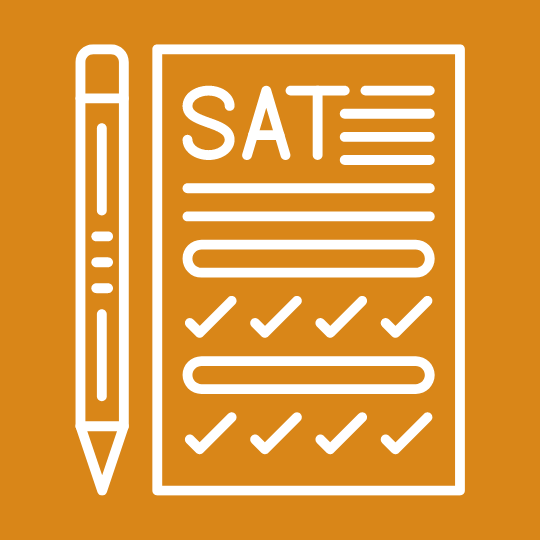
Take the SAT/ACT
Junior year is a pretty important time when it comes to college entrance exams . The SAT and ACT are the most common, and most colleges need them. It’s a good idea to take these exams in the spring of your junior year and then again in the fall of your senior year. You can use online practice tests , test prep books, and tutoring to prepare.
Take AP Exams and Subject Tests
AP courses are like college-level classes you can take in high school. After each course, you can choose to take an AP exam. If you do well, you might get college credit and show off your skills to colleges and universities.
Some colleges and universities might ask for or suggest Subject Tests that cover topics like math, science, literature, and foreign languages. Junior year is an excellent time to start figuring out which Subject Tests you might need to take.
Note: Not all schools need AP exams or subject tests, so it’s a good idea to check out the policies of the schools you’re eyeing.
Financial Planning for College as a High School Junior
Financial planning is one of the most critical parts of getting ready for college, so don’t skip over this section.

Apply for Financial Aid
The first stop on your money-smart journey is getting cozy with the Free Application for Federal Student Aid (FAFSA). It’s available online and should be done as soon as possible after January 1st of your junior year. This form is like the golden ticket of student aid—it opens doors to grants, loans, and work-study funds from Uncle Sam. Grants are free money that does not need to be repaid, while loans must be repaid with interest. Work-study programs allow students to work part-time on campus to earn money for college.
Moving right along—there’s another player in town called the CSS Profile by College Board . Think of this one like an audition tape you send colleges showing them what kind of financial support could help you shine on campus. While not every school asks for it, those who do are often ready to hand out scholarships or grants based on what they see. So don’t be shy—submit that CSS Profile.
Apply Scholarships and Grants
Scholarships and grants are another way to cover college costs. Scholarships are often given for academic achievements, while grants are based on financial need. Some of this assistance is available through the college itself. But local businesses, non-profits, and even your high school might have opportunities for you to snag some extra cash for college. So keep an eye out in your community, and don’t be shy about asking around.
It’s worth mentioning that some scholarships and grants might have specific requirements, like being part of a particular ethnic group or studying a specific major. You might be surprised to learn that you can apply to many scholarships beginning your junior year . Be sure to read through the eligibility requirements before applying.
Save for College
Putting money aside for college is another big part of getting your finances in order. Students and their families can kick off their college savings by opening a 529 college savings plan as early as they can. This plan gives them some tax benefits and can be used to cover college expenses. Parents and students can also check out other savings choices, like a Coverdell Education Savings Account or a custodial account. It’s critical to start saving early.
Helpful Tip: Finessing Your Family Talks: Discussing money matters around dinner might seem less fun than watching paint dry, but think again. Sitting down with your family members gives everyone a chance to weigh in and figure things out together. Which schools give us bang for our buck? How much should we borrow? These chats are essential—not just fluff—and knowing everyone’s thoughts upfront will save headaches later.
Frequently Asked Questions
Junior year is a crucial time for college prep. You’ll want to create a list of colleges you’re interested in and start visiting them. You’ll also want to beef up your extracurricular involvement and stay committed to good grades. Taking the SAT or ACT is wise since you can repeat it as a senior if you aren’t happy with the results. Finally, this is the year to fill out the FAFSA and start applying for scholarships.
Junior year is the most crucial if you plan to attend college after graduation. That’s because it’s the last year schools will see a full year of your academic performance and extracurricular activities.
It’s not common for students to apply to college as juniors. Most usually apply during their senior year. When figuring out your college application timeline, it’s a good idea to chat with your high school guidance counselor. They can help you know when to apply and ensure you meet all the requirements and deadlines.
The ideal time for you to start the college application process is the summer before your senior year. In most cases, you can start submitting applications on August 1st. However, timelines can vary.
Absolutely! There are scholarships out there specifically for juniors, not just for seniors. It’s a smart move to start looking into scholarships early to up your chances of getting financial help for college. Plus, getting a jump on the search can help ease some of the stress during senior year when you’ve got a ton of things on your plate.

- 720-279-7577

‹‹ BACK TO BLOG
College Timeline for Juniors
Mark montgomery.
- January 22, 2020

What is the proper college timeline for juniors? How should 11th graders prepare for college? When should they begin choosing the colleges that best fit them? What is the right college application timeline for juniors? These are all important questions in the college preparation, selection, and application process. This is our Great College Advice for juniors to help them stay on track throughout the most important year in the college admissions timeline.
The timeline is presented by season. One of the misconceptions of the college planning process is that everything happens according to a pre-0rdained, consistent timeline. While there are aspects to the process that are tied to specific dates, the fact is that no two students undertake and complete the process in exactly the same way.
Thus the Great College Advice timeline is organized in a way to help you stay on track without creating a feeling that you are somehow always late with every aspect of the process. Our role in this process is to empower you to manage the process in the way that is best for you. Everything you’ll find on this list is something you should consider to be part of the process. But frankly, with very few exceptions, you’ll also find that the items can be done in an order that suits you best.
So have confidence! Take control of the process! Use this document as a way to ensure that you get it all done–with time to spare. But don’t be a slave to this timeline. Adapt it to suit the individual that you are.
College Timeline for Juniors in the Fall and Winter
Make sure you’re in the right classes.
This year is your last real chance to impress with the classes you’re taking, so make it count! Work with your counselor to make sure you’re not taking on too much, but that you’re also challenging yourself. If you’re unsure whether to take a tough course because you’re worried about your GPA, have a look at our post here . Keep studying to make sure your grades stay up!
Continue your extracurricular interests
Colleges want students who are engaged and active. They want students who will animate their campuses and make them interesting places to work and play. Consider stepping into a leadership role. Find ways to expand and deepen your commitments to the areas in which you already excel. The more achievements you can rack up in the next year, the better. And remember, the quality of your commitments is much more important than the quantity. Colleges will be looking for your achievements first. Being a participant is great, but learning to lead and excel is better.
College Admission is NOT a Timeline
As you review this college admissions timeline, remember tha t college planning rarely evolves according to a strict timeline . Keeping up your grades is not exactly something you can schedule: it’s something you have to work on every day. Similarly, your record of extracurricular achievement depends on a lot of factors that are hard to slot into particular days of the week or months of the year. Even developing a test prep calendar can be difficult, and plans can change depending on how hard you prepare and the score you get on your first attempt.
So it can be misleading to think of the process of getting into college as a simple timeline that you follow from month to month. To learn how to take a wider view of the college preparation process, check out Mark’s free webinar on the secrets of college admission.
Make a testing plan
If you haven’t already, fall is the time to map our your testing plan. Take full-scale diagnostics on both the SAT and the ACT to understand which test suits you best. Many test prep companies, such as ArborBridge , will offer a free diagnostic and recommendation as to which test would be better for you. Armed with this evidence, you can plan how to prepare and choose dates that work best for you.
We strongly recommend that you schedule at least one “real” test in your junior year, and have another date as a “back up plan.” We generally recommend that you try to take your first test in the fall or winter of junior year, with spring as a fall back option if you need to retake. Senior year is going to be super busy, so don’t leave the testing until the last minute. Plan!
Take the PSAT in October
Even if you took it last year, this is the one that counts! The PSAT is used to qualify people for the National Merit Scholarship Competition . Even if you don’t think you’ll score high enough to qualify for the scholarship, the PSAT is a great way to acclimate yourself to the fun of taking standardized college entrance exams (just kidding!). You will sign up for the PSAT at your school, so look for announcements from your guidance office.
Prepare for the ACT and/or SAT
We generally recommend one-on-one tutoring for our students. While the per-hour cost is more, a really good tutor can help you raise your score, which not only increases your chances for admission but can really boost your chances of a merit scholarship. If private tutoring is impossible, try to attend an ACT/SAT class or workshop. Some high schools will even offer these workshops for free, so look for announcements from your guidance office. If you can’t, there are books and websites you can use. Strongly consider signing up for the ACT/SAT during the spring semester at the very latest. Follow these links to sign up for the SAT and the ACT .
Research possible college majors
Now is the time to really focus in on what you want your major to be. Identify your interests and look up online what careers and majors are associated with them. Some websites offer free tests that assess things you like and dislike and offer possible major choices, which could help you if you’re not sure where to start. Check out MyMajors.com as an example. You can also talk to your counselor about choices and to see if they offer a career test as well.
Make a college list
It’s time to start making a list of schools you want to apply to. Keep in mind that you should have safety, target, and reach schools on your list—don’t just apply to one Ivy League! Gather information on admission criteria and deadlines. Make sure the schools you’re interested in have the major you want to study. Consider things like size and location as well as academics. Will you be happy at a rural school, or do you want to be in the city? Do large lectures seem like the way to go, or would you rather have a school with small classes?
Attend more college fairs
Now that you have a list of schools you’re interested in, visit their booths at a college fair near you. Introduce yourself, talk to the admissions representative, and ask questions. Sign up for their email list. Your high school guidance office will likely be sending out information about these fairs. You might also consider a smaller, more targeted fair, such as the College That Change Lives fairs . Or check out the more specialized fairs for things like performing arts , studio art, or STEM.
Talk to your family
Let your family know which colleges interest you. Listen to their questions and concerns; they might be things that didn’t occur to you, or they might ask you questions things you can already answer. Now that will impress them that you’ve got this process under control! If, however, you’re feeling hounded by your parents about the college process, suggest to them that you make a set time every week to discuss college stuff. This way you keep the family discussion going, but you can avoid the constant nagging: “Hey, Mom, thanks for reminding me about this college stuff; let’s talk on Wednesday after dinner at our appointed time.” Sometimes creating boundaries are as important as creating a college admissions timeline.
College Timeline for Juniors in the Spring
Help out senior friends.
If you have friends who have started getting college acceptances, offer to help them with locating scholarship information. Not only is this a nice thing to do, it’s information that you’ll be able to use yourself next year—without having to look it up again.
Schedule college visits
Try to do as many visits as you can while the campus is holding classes. Spring break could be an ideal time for these visits. You’ll get a much better idea of what it’s really like there during classes than you will while the school is on break. Take a campus tour, go to an information session, and see if you can meet with an admissions officer or a faculty member in your intended major. Make sure you go prepared with questions to ask! Keep in mind that some schools offer admissions fee waivers when you visit, so it doesn’t hurt to ask.
Download this comprehensive e-book to learn how to get the most from your campus visits.
Demonstrate your interest
Colleges want to know that you are interested in them. College visits are one sure-fire way to demonstrate that interest. However, if you’re unable to visit for any reason, you should still let the admissions office know that you are seriously considering their college. Fill out the form on their admissions website to request more information. Write a short note to an admissions officer asking for specific information about a program or major that interests you.
Follow the school’s account on Instagram, Facebook, Twitter, and other social media (believe me…this sounds crazy, but it helps). Think of each of these contacts as a “brownie point” in the admissions process. And who doesn’t need more brownie points?
The the ACT and/or the SAT
Even if you plan to take these tests during your senior year, it can be helpful to take them now, too. Make sure you sign up by the deadline and arrive with all required materials and nothing else.
Ask for letters of recommendation
Many schools will require you to have letters of recommendation from teachers or guidance counselors. Ask those individuals towards the end of your junior year, when they’ve just had you in class or in the office. This way, they’ll remember you better, and will be able to write a compelling letter telling everyone how wonderful you are. If you wait, you might get a more generic letter, which won’t help as much in the admissions process. To learn how you can get great letters of recommendation, check out this article . Recommendations are an important aspect of your college admissions timeline.
College Timeline For Juniors in the Summer
Decide who you will apply to each school on your list.
Early action? Early decision? Regular decision? Figure out which admission programs you’re going to apply under for each school. We generally recommend that you apply early for as many schools as possible. Make sure to check and see if there are any special early deadlines for scholarships or for certain programs. Mark the dates on your calendar, and make sure to give yourself enough time to complete all of your applications.
Work on application essays
Most applications release their essay prompts well in advance of when the application actually opens. The Common Application usually releases topics in March. Starting your essays well before they’re due gives you the chance to put a lot of thought into them, which will help your essay stand out more.
The hardest part of the entire essay process is landing on a topic that will make you shine. It also gives you plenty of time to edit so your essay is perfect. Also note that many colleges require additional, or supplemental, essays as part of their applications. You will need to look these up and create a document that contains all the prompts you will have to address on your various applications.
College Admissions Timeline for Junior Parents
Visit nearby schools.
Arrange a day trip to a few nearby colleges. They don’t have to be ones that your student is interested in; check out a big school vs. a small school or a public university vs. a liberal arts college. Visit places with differences so you can start a conversation about what your student is really looking for in a school.
Help your student narrow down the college list
Ask your student to explain why each school is on their list. Help them think of pros and cons for each school so they can really narrow it down. (This will help later, too, when they have to write a supplemental essay on the topic, “Why do you want to go to this school?”). Attend college fairs with your student, if possible, and help arrange college visits for you and your student.
Ask about scholarships
Make sure your student is looking into potential scholarship opportunities. Ask at work if they have a scholarship program for employees’ children. Find out about local scholarships for which your student can apply.
The college planning timeline summary
So there you have it–a college planning timeline for juniors. This to-do list contains the things you need to stay on track and take control of the college planning process. However, if you feel as though you need some personal guidance in through this process so that you can blaze your trail toward college success, give us a call (after all, it’s much more than a college admissions timeline).
Send us an email. Or sign up for a free 20-minute consultation to find out whether personally, tailored college admissions advice can help you make the process of preparing, selecting, and applying to college more successful, less stressful, and more fun.
Archive by Date
Recent posts.
- AP Scores and College Admissions
- An internship for my college application
- Cómo postularse a universidades de EE. UU. desde México: una guía básica
- How to Apply for US Universities From Mexico: Your Helpful Guide
- Solicitar el ingreso a universidades estadounidenses desde Perú: Una guía paso a paso

Join our Facebook Group ›› Stay informed about college admissions trends and ask questions of experts who can give you Great College Advice.


- Staff & Faculty
- Current Students
- Parents & Family
- Visitors & Community
- Corporate Partnerships
- Support Marymount
- Marymount Shuttles
- Student Counseling Services
- News & Events
- Campus Safety
- Faculty & Staff Directory
- My Marymount
- Registrar’s Office
- Library & Learning Services
- Campus Ministry
- Human Resources
- Office of the President
- Marymount at a Glance
- Points of Pride
- Our Mission, Vision, & Plan
- Capital Location
- Our History
- The Rixey History
- Our Inclusive Community
- Marymount’s Economic Impact
- Involvement & Service
- Distinguished Speakers
- Map and Directions
- Visit Marymount
- Admitted Students
- Undergraduate Students
- Graduate Students
- Online Students
- Non Degree Students
- Summer Programs
- Early College Programs
- Scholarships & Aid
- Early Learning Academy
- New Student Scholarships
- How to Apply
- Types of Aid
- Graduate Student Aid
- Military & Veteran Services
- Financial Aid FAQs
- Tuition & Fees
- Satisfactory Academic Progress Standards
- Office of the Provost
- Academic Calendar
- Majors & Programs
- Online Programs
- Services & Resources
- College of Business, Innovation, Leadership, and Technology
- College of Health and Education
- College of Sciences and Humanities
- Access, Belonging, Inclusion, Diversity, and Equity Hub
- Marymount Global
- Center for Optimal Aging
- Saints’ Service Network
- Faculty Research and Experts
- Commencement
- Student Affairs Administration
- New Student Orientation
- Dining Services
- International Student & Scholar Services
- Student Activities and Events
- Student Accounts
- Commuter Students
- Student Health and Well-being
- Community Standards and Title IX
- Ministry, Activities & Leadership
- Careers, Internships & Employment
- Auxiliary Services
- Campus Safety & Emergency Management
- Student Government Association
- Student Success and Well-being
Home News Why you should visit colleges during your junior year
Why you should visit colleges during your junior year

It’s your junior year of high school, and you’re eagerly awaiting all the treats your senior year has to offer — prom, senior privileges, graduation and college decisions! But try not to put off college visits , tours or interviews to your senior year. Exploring your college options during your junior year will give you more time to find the college that is perfect for you.
Here are three reasons why you should visit colleges during your junior year.
1. Get a better sense of what you’re actually looking for in a college.
Are you not quite sure what your ideal ‘dream school’ looks like? Don’t worry! If you start visiting colleges during your junior year, you’ll have plenty of time to figure out what you do or don’t like. You can visit plenty of different kinds of schools — large, small, private, public, conservatory or vocational. Your options become limitless!
Maybe you already have an idea of which colleges you’d like to apply to. Visiting them early can help you narrow down and categorize your choices. You can get a better feel of which schools might be a reach to get into, which ones are in your target zone or which ones are good safety schools. You’ll also get a better feel for your favorites, and can spend more time on the applications for those schools.
2. Get a better sense of what colleges are looking for in students.
You probably won’t start working on your college applications until the summer before your senior year at the earliest. Visiting colleges and talking to tour guides or admissions counselors before you apply can help you gauge what the college is looking for in applicants. Then, you’ll have plenty of time to tailor the essay or free response portions of your application to that particular college!
Visiting colleges during your junior year will also let you get acquainted with different college campuses before you’re in the throes of your senior year. Maybe you only visit large, sprawling campuses at first, and decide a big school isn’t the best choice for you. Since you visited months before you have to apply, you still have time to peruse your options, and check out some smaller schools or schools with a more ‘intimate’ feel.
3. Find out what it will take to succeed at different schools.
You can only learn so much about a school from its website. Success in college isn’t all about academics — every school has a different campus culture, as well as particular ways that classes are constructed (large lecture or small seminar classes, or a mix?). Plus, the community surrounding a campus varies. Visiting early will give you time for a reality check — can you see yourself spending the next few years of your life at this school? Is a school located in the midst of an expensive city that you can’t afford right now? Can you see yourself fitting in with the students you see hanging around campus?
Visiting colleges during your junior year will also motivate you to finish strong. It’s easy to get distracted with all the excitement of senior year, and to lose sight of your academics a bit. But once you’ve been to college campuses and had a little taste of the college scene, you’ll be inspired to keep your grades a top priority so you can get accepted to the school of your dreams!
Plan ahead and give yourself enough time to put thought into your college applications and decisions. This time shouldn’t be stressful — it’s exciting! You get to plan the next steps of your life, and you have so many different options to choose from. Starting to explore these options in your junior year will help your final year of high school go smoothly, and you’ll be walking across that graduation stage before you know it!

(703) 522-5600
Privacy Policy - Terms of Use
- Contact CONTACT MARYMOUNT
- Directions MAPS & DIRECTIONS
- Careers CAREERS AT MARYMOUNT
- Student Jobs JOBS ON CAMPUS (MU STUDENT)

- 888-975-9455
- Let's Talk
Campus Visits
College visits and tours.
By visiting college campuses in person, you can make college application decisions with all five senses.
With so much information available about colleges, it would be easy to see the list of schools you’re interested in applying to top 20 or 30 colleges. Trying to narrow down your college choices so that you apply to the institutions that fit your personality and goals the best based solely on what you’ve heard or read can be difficult. By visiting campuses in person, you can make college application decisions with all five senses. At Going Ivy, our professional counselors can help you with your campus visit planning so you derive the most benefit from your visits and so that you are memorable to the admissions staff.
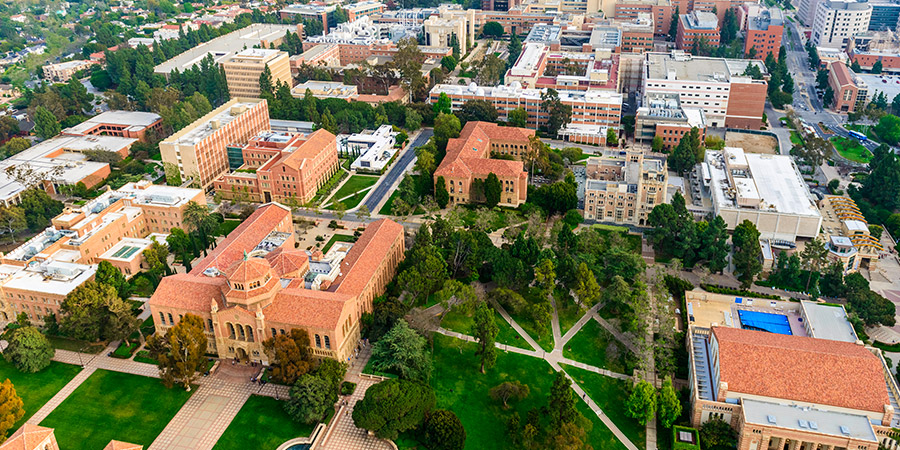
Using the Campus Visit to Your Advantage
The Going Ivy team is made up of graduates from some of the most elite schools in the country. We understand how important it is to choose a school that fits you. While the thousands of U.S. colleges and universities are well-respected and rigorous, they are each different in their individual cultures, campus neighborhood, pace and more. We can help you plan your visits and prepare for them so that you are better able to determine which school you want to attend, researching the institutions and planning questions to ask of students and staff while you’re there.
Why Visiting is Important
Since your chosen college will be where you live for four years, it is important that you choose the school at which you’ll be the happiest. You don’t want to go through the extreme effort of getting into an exclusive school only to find that just don’t feel like you’re home. This makes it very important that you don’t simply select a school because of its academics or reputation. In order for you to obtain a better picture of a college’s individual culture, it is important for you, whenever possible, to go there. You can then talk to the admissions staff and students, see what the housing is like, visit the library and eat in the dining hall. This can give you a more rounded perspective on the school.
Do Background Research Before Deciding to Visit a School
Before even deciding on which schools to visit, Going Ivy can help you narrow your list by researching the schools. You can learn a lot by reviewing a school’s website, reading its blog, checking out its social media pages and reviewing its campus newspaper and college brochures. If you see that the school is not very interactive with its students or doesn’t seem to have the right feel for you, then you can cross it off your school application and visiting list. This may allow you to reserve your visiting schedule for the schools that are most interesting to you.
Schedule Your Visit Ahead of Time
If you have the opportunity to visit a college, even if it’s during your family summer vacation after your sophomore year of high school — schedule it. Secure a spot on the college’s planned information session, and if you can request meetings with anyone beyond the generic tour, do it. If you schedule a tour toward the end of your junior year or into your senior year, you’ll want to let the college staff know that you will be applying or have applied. If the college allows interviews for applicants, this is a great opportunity that you should practice and prepare for.
Get Your Name on Your School’s Radar
All colleges work to protect their reputations, and one way they do this is by striving for a high yield percentage. A school’s yield is its percentage of admitted applicants who choose to attend, and it affects the rankings of colleges. When you visit a college and apply early, the school is likelier to believe that you are highly interested in attending, which may translate into your application getting a careful of perhaps more favorable look. You don’t want the school never to have seen your name before they see your application. Sign up for the school’s information list and social media posts. When you schedule your campus tour, make certain to ask for the name and contact information for the person who is designated for handling travel for students from your region. This person will likely be the first admissions officer who will review your application materials when you submit them. Follow up with this person after the tour with an email to ask additional questions and thank them for their time.
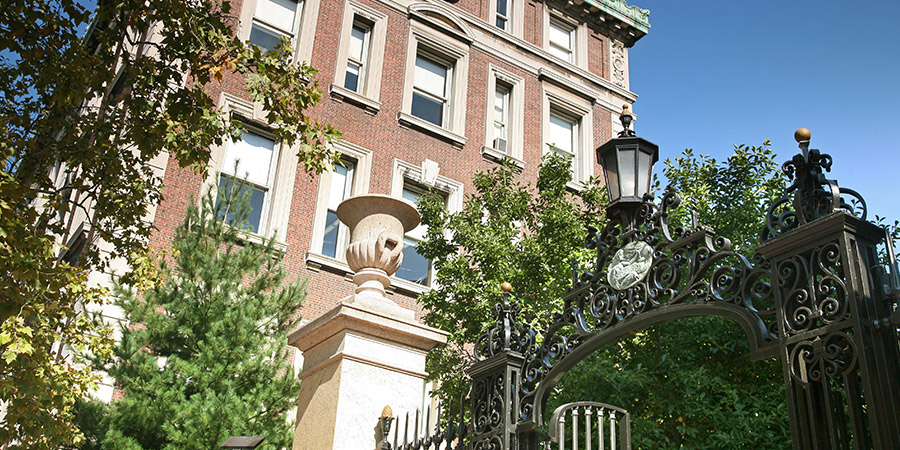
Get Beyond the Generic Tour
During your visit, you should plan to go beyond the simple student-led tour and information session. You should have come up with a list of questions that you have to ask during the information session so that you can elicit more information about the school, what it offers and what it is like to attend. In addition, most schools will let you sit through a class in your interest area if you give them advance notice and coordinate it with the proper people. It is also a good idea to eat in the dining hall so that you can get an idea of how the students interact with each other. Many schools offer more formal welcome sessions with a organized day or overnight visit to the campus for high school juniors or seniors. These visits are helpful as you make your decision to apply and can offer great material for your application, but you must register for them in advance.
Don’t be afraid to ask students about what it is like to attend the school. If you’re visiting with your parents, split up for at least a few minutes to get your individual impression of the campus and where you’d be comfortable meeting friends, reading, grabbing a quick snack, or getting some exercise.
If you are planning to visit several universities, we recommend that you not visit more than two in a day. You will need to give yourself enough time on each campus to get a feel of what it is like. When you visit, use your phone to keep track of your observations and take pictures to help trigger memories later, but don’t be on your phone around the admissions staff.
Getting Help from Going Ivy
Our expert counselors can explain what we have experienced at the different institutions, and what you might look for or ask about on your visits. We also understand that not everyone will be able to visit schools in person, so we offer a virtual reality tour by using Oculus Rift and 3D technology. We can also help you to plan your questions in advance and schedule your visits so that you can get the most benefit out of them. To learn more about our services, contact us today.
Clients Accepted To
Meet our team of former admissions officers, Ivy League and top school graduates, and tutors.
Videos & Testimonials
“A breath of fresh air." Kilroy Family Testimonial
"A coach to guide them." Wissink Family Testimonial
Call Now 888-975-9455 Free, No Obligation Consult
Send us a message.
- Phone This field is for validation purposes and should be left unchanged.
Free, No-Obligation Consult

Home » Resources » College Visits: How Early is Too Early?
College Visits: How Early is Too Early?
- January 9, 2018

Many of our parents ask, “When is the optimal time to start college visits?”
Our standard recommendation is to start thinking about college visits during junior year of high school. (Our blog posts here and here provide additional context on the benefits of junior year college visits.)
However, there are some cases where some students could benefit from college visits earlier in their high school careers. For some, a few well-placed, laid-back campus visits can reduce your anxiety around the college process, and give you a sense of what you’re working towards after high school. Let’s take a closer look at successful ways to approach college visits.
What Types of Students Benefit From Early College Visits?
- The Late Bloomer: Some students have lots of potential but don’t particularly love high school, and haven’t been fully engaged in their first year or two. If this is you, don’t fret; there are plenty of adults (maybe even a parent!) who blossomed after high school, and it’s super common to come into your own during your college years. This type of student can really benefit from an early college visit, as it will give you a taste for what lies beyond high school. It can be incredibly helpful to see that college is not just a bigger version of high school—that campuses offer a much broader array of opportunities and experiences. You may find that asking yourself “What will it take for me to get here?” is the motivation you need to work hard throughout high school so you can make it to the independence and freedom that lies just a few tantalizing years away.
- The Seeker: Some students are plenty motivated and engaged academically, but aren’t sure exactly what they want from their high school experience. If this describes you, visiting colleges early can provide a template for how you might want to shape the remainder of your time in high school. For instance, if you visited a technical institute and felt right at home, that might influence your decision to push yourself to take AP math classes. On the other hand, if you fell in love with the small liberal-arts schools you visited, maybe it’s time to join the debate team you’ve been wondering about.
- The Focused: Have you always known you wanted to be a Bruin, or a Badger, or a Gator? Is your bedroom decorated in your chosen college’s colors? Do you wear their sweatshirt to school every day? We love your focus and dedication, but here’s the brutal truth: it’s time to expand your horizons, because in today’s hyper-competitive college application process, putting all your eggs in one college basket tends to be a bad idea. Not to mention, both high school and college are times of incredible change, and you may find that the campus you’ve been picturing since you were 10 isn’t nearly as magical to 17-year-old you. Take some early, exploratory college visits to schools other than your dream school, and see what else is out there!
You don’t have to fall into one of the above categories to visit colleges early—they make sense for a lot of families. We do think that there are some students who should not visit colleges early, however. If this describes you, take a rain check:
Students Who Should Not Visit Colleges Early:
This is simple: students who already have a lot of anxiety about the college process. If you’ve been having SAT nightmares since the first day of ninth grade, what you need is less pressure, not more—and even an exploratory visit has the potential to create stress. Take a deep breath and put college visits on hold until you’re ready.
Tips for Making the Most of an Early College Visit
If you’ve read all of the above and decided that early college visits will work for you, it’s important to keep a few things in mind to make your college visits the most helpful they can be. First,
Understand the goal of the visit.
The goal of a college visit in sophomore or even freshman year is to paint a picture of the future, in broad, impressionistic strokes. The schools you visit do not need to be the places you eventually apply. Treat these visits as casual, fun opportunities for you and your whole family. If you’re passing through a college town on a family vacation, or need an easy weekend activity, an early college visit can be a natural fit. It can be as simple as a quick drive around a nearby campus.
Summertime can be a great opportunity for these relaxed visits, although keep in mind that many campuses are very quiet during these months. To really get a feel for the campus, it might be worthwhile to check the school calendar and try to visit when it’s holding summer classes. Again, there’s no need to set a goal for a particular number of college visits in a given summer, or to plan a trip around them. These visits are exploratory! Second,
Do a small amount of planning for your visit.
While we do recommend keeping an atmosphere of curiosity, we also recommend approaching early college visits in a similar way to other college visits, which means doing some planning to get the most out of the experience. See our downloadable college visit worksheet .
Even a casual college visit should reflect your interests and passions. If you love sports, look up the sports schedule—perhaps you can catch a game or watch a practice. If you’re the star singer in your school’s choir, look into sitting in on a rehearsal. Be careful not to over-plan, but a small amount of preparation can make a big difference!
Ultimately, like so many other things in the college application process, this is a judgment call. If you try out a college visit and it doesn’t go well—you or your parents are irritable, or you end the visit feeling down, or stressing about your GPA—put this process on hold. You have plenty of time, and it’s not worth adding to your stress.
If all goes well, however, you’ll walk away from early college visits with newfound motivation and a positive image of a potential future!
Want personalized advice and resource tools for high school?
Sign up for our weekly high school list.

More Resources

Podcast: Joy Meserve: Leading with Joy

Academic Excellence Without Burnout

College Waitlists, Acceptances, and Strategic Positioning
- 160 Alewife Brook Pkwy #1247 Cambridge, MA 02138
- [email protected]
- 617.714.5262
Signet Education is a member of the National Association for College Admission Counseling and subscribes to the Statement of Principles of Good Practice.

When Should You Start Visiting Colleges?
Visiting colleges is a really important piece of your college journey. You want to get a true feel for the school’s personality, and stepping foot on campus will help you do just that. There is no hard and fast answer as to when you should start visiting colleges. You can start as early as your freshman year of high school and continue visits into your senior year. Because junior year is such a busy year, we recommend that if you haven’t already started, that you begin visiting colleges at the end of sophomore year or the summer before junior year.
When It Comes to Campus Tours, the Earlier You Start, the Less Stressed You Will Be
In junior year, time quickly gets away from you – especially if you play sports. So start your research, make your list of schools, and schedule those college visits early. Research colleges online and make a list of schools that interest you based on majors, size, location, school spirit and more. Our article What to Look for When Searching for Colleges can help you get started.
In 9th grade you can certainly dabble in college visits. In 10th grade, you should definitely jump in and start taking tours and signing up for information sessions. It is important to get a flavor for what it is like to be on a college campus and what to look for – and the earlier the better. This will give you an opportunity to really cast a wide net, then narrow down your college search so you can find schools that fit you best.
And, by getting this head start early, you will be less stressed when it comes time for completing those college applications. You will have an idea of what you like and don’t like about the schools you were interested in. And, you may even have more time available to visit those on the top of your list a second time.
Fit in Visits in Your Spare Time
Free weekends, school vacations and holidays are the perfect time to schedule a college visit. If there are colleges in your local area, start there. When taking a trip or heading to a sport tournament, see if there are any colleges on the way or in the area where you are staying and fit in a tour. Some families even like to schedule their vacation time around schools they want to visit.
By 10th grade and early into your junior year, visiting schools starts to get a lot more serious. So I would definitely suggest during your sophomore year, and certainly the second half of your sophomore year, to start visiting schools, continuing to do so into your junior and ultimately your senior year. I always say, don’t put off until tomorrow what you can do today – and that applies to college visits.
Looking for help with the college search and application process?
Looking for help with the college search and application process? We help students and families through the entire college planning journey – from search , applications and essays to interview prep , financial aid consultation and final school selection .
Contact us at info@signaturecollegecounseling.com or by phone, 845.551.6946. We work with students through Zoom, over the phone, and by email.
Calculate for all schools
Your chance of acceptance, your chancing factors, extracurriculars, is the april act test a good time to take it.
Hey fellow students! I'm a junior in high school, and I've been seriously thinking about when the best time would be to take my ACT. I noticed there's an exam date in April, and I'm considering signing up for it. What do y'all think? Is April a good time to take the ACT or should I wait for a later date? Any advice or opinions would be greatly appreciated!
Hello! The April ACT can be a great time to take the test, especially for juniors like yourself. Here are a few reasons why the April test date might be a good idea:
1. Timing: As a junior, taking the April ACT allows you to have the summer months to focus on preparing for a retake, should you need one. This way, if your score isn't quite what you were hoping for, you have plenty of time before college applications are due to improve and try again.
2. School workload: By April, you have likely covered most of the material in your classes that will be tested on the ACT, so it's a suitable time to test your knowledge. Additionally, finals and end-of-year projects aren't quite in full swing just yet, which means you should have more time to study and prepare for the exam itself.
3. College visits and applications: Many students use the summer before their senior year to visit colleges and start working on their applications. Having your ACT score in hand by the time you start researching colleges and working on your applications can give you a better sense of where you stand and allow you to create a more targeted list of schools based on your scores.
4. Keep your options open: Some selective summer programs may require ACT scores for admission or scholarships, so having your scores available earlier could be helpful. Plus, taking the test earlier in your junior year allows you to identify areas that need improvement and work on them well before college application deadlines.
Remember that everyone has a different schedule and ideal test-taking timeline. If you feel like you're adequately prepared or will be by April, go for it! If you prefer to wait for a later date, though (like early summer), there's no harm in that, either. Ultimately, it's about finding the right balance between your schoolwork, extracurriculars, and test preparation. Good luck!
About CollegeVine’s Expert FAQ
CollegeVine’s Q&A seeks to offer informed perspectives on commonly asked admissions questions. Every answer is refined and validated by our team of admissions experts to ensure it resonates with trusted knowledge in the field.
Advertisement
Meet the 10 players on the final watch list for the 2024 annika award, share this article.
The postseason is underway in women’s college golf, and after NCAA Regionals concluded Wednesday, the NCAA Division I Women’s Golf Championship field is set for May 17-22 at Omni La Costa’s North Course in Carlsbad, California.
With the championship field set, the race for the Annika Award is starting to heat up. A handful of players have made their case throughout the season as front-runners for the Annika Award presented by Stifel, which honors the player of the year in women’s college golf, as selected by college golfers, coaches and members of the college golf media. And now, the final watch list is here.
If you fit one of the listed criteria above, here’s a link to cast your vote: haskinsfoundation.org .
The players are listed alphabetically. Players on the Annika Award Watch List were selected by a panel of college golf media, including those from Golfweek .
College golf : Meet the 30 teams, 6 individuals who advanced to the Division I Women’s Golf National Championship
Here are the 10 players on the final watch list for the 2024 Annika Award:
Emma Bunch, New Mexico State

New Mexico State’s Emma Bunch won the Conference USA title. (Photo: Conference USA)
Class : Sophomore Wins : 5 (GCU Invitational, UNF Collegiate, PING/ASU Invitational, Wyoming Cowgirl Classic, Conference USA Championship) Top-10 finishes : 9 Top-25 finishes : 11 Events : 11 NCAA ranking : 56
Zoe Antoinette Campos, UCLA

UCLA’s Zoe Campos won the 2024 Pac-12 Preview. (Photo: UCLA Golf)
Class : Junior Wins : 4 (Pac-12 Preview, The Show, Ping/ASU Invitational, NCAA Las Vegas Regional) Top-10 finishes : 8 Top-25 finishes : 9 Events : 10 NCAA ranking : 11
Rachel Kuehn, Wake Forest

Wake Forest’s Rachel Kuehn. (Photo: Wake Forest Athletics)
Class : Fifth year Wins : 2 (ACC Championship, NCAA Bermuda Run Regional) Top-10 finishes : 6 Top-25 finishes : 7 Events : 10 NCAA ranking : 15
Ingrid Lindblad, LSU

LSU’s Ingrid Lindblad. (Photo: LSU Athletics)
Class : Fifth year Wins : 4 (Cougar Classic, Illini Women’s Invitational, Clemson Invitational, NCAA Bryan Regional) Top-10 finishes : 9 Top-25 finishes : 9 Events : 9 NCAA ranking : 1
Julia Lopez Ramirez, Mississippi State

Mississippi State’s Julia Lopez Ramirez. (Photo: Mississippi State Athletics)
Class : Junior Wins : 2 (Darius Rucker Intercollegiate, SEC Championship) Top-10 finishes : 5 Top-25 finishes : 7 Events : 7 NCAA ranking : 2
Catherine Park, USC

USC’s Catherine Park. (Photo: USC Athletics)
Class : Sophomore Wins : 3 (Stanford Intercollegiate, Silverado Showdown, Pac-12 Championship) Top-10 finishes : 7 Top-25 finishes : 9 Events : 10 NCAA ranking : 5
Louise Rydqvist, South Carolina

Louise Rydqvist of Sweden reacts to a birdie on the No. 18 green during round two of the Augusta National Women’s Amateur at Champions Retreat Golf Club, Thursday, April 4, 2024.
Class : Junior Wins : 1 (Annika Intercollegiate) Top-10 finishes : 5 Top-25 finishes : 8 Events : 9 NCAA ranking : 9
Amanda Sambach, Virginia

Virginia’s Amanda Sambach. (Photo: Virginia Athletics)
Class : Junior Wins : 1 (Glass City Invitational) Top-10 finishes : 7 Top-25 finishes : 9 Events : 10 NCAA ranking : 7
Paula Martin Sampedro, Stanford

Stanford’s Paula Martin Sampedro. (Photo: Stanford Athletics)
Class : Freshman Wins : 0 Top-10 finishes : 8 Top-25 finishes : 9 Events : 9 NCAA ranking : 10
Lottie Woad, Florida State

FSU’s Lottie Woad. (Photo: LSU Athletics)
Class : Sophomore Wins : 1 (Annika Intercollegiate) Top-10 finishes : 7 Top-25 finishes : 7 Events : 7 NCAA ranking : 3
Most Popular
Hello friends: jim nantz built a new backyard hole that is an homage to augusta national's 13th green, the price of loyalty: pga tour pros from jordan spieth to adam scott to chesson hadley react to the pga tour's equity ownership plan, meet the nine moms in action this mother's day week at lpga cognizant founders cup 2024, liv golf’s midseason trade window is open. here’s what to expect from the 13 teams, wells fargo championship 2024 leader xander schauffele receives favorable ruling from penalty area, the list of top 18 money winners in pga tour history has plenty of surprises, meet the 16 liv golf players in the field for the 2024 pga championship at valhalla.
- Sign Up / Log In
Create a free profile to get unlimited access to exclusive show news, updates, and more!
Atlanta DJ’s Wife Murdered At Home, Where Toddler Son Saw Horrifying Scene and Tried to Wake Her
Tiffany Jackson Pugh, the wife of a popular Atlanta DJ, was fatally shot in her house while her two kids were also home, making for a heartbreaking scene caught on surveillance footage.
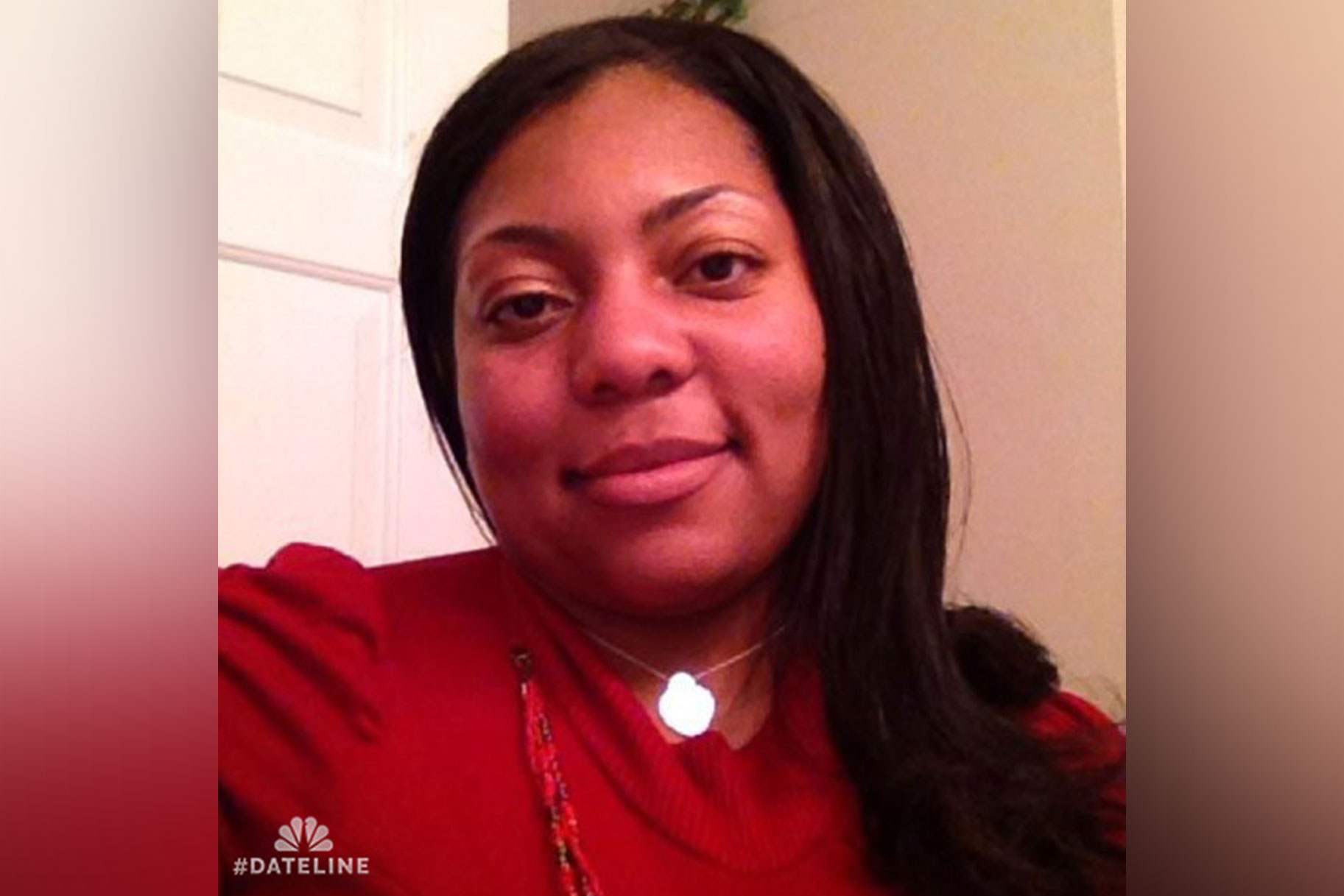
Tiffany Jackson Pugh , the wife of a popular Atlanta DJ, was 30 years old when she was fatally shot in her house while her two young children were also home.
How to Watch
Watch Dateline on NBC and Peacock .
Pugh’s November 2014 death, featured in a new two-hour Dateline airing Friday, May 10 on NBC, sent shockwaves through the Atlanta music scene as fear spread that someone might be singling out the influential DJs who helped promote the careers of young rappers.
“The chilling echo of another DJ's murder just months prior raises suspicions of a targeted attack on the city's music community,” reads the synopsis for the episode that's titled “Sound and Fury."
RELATED: California Woman’s Mysterious Fatal "Fall" in the Middle of the Night Turned Out To Be More Sinister
“It’s way too coincidental that there are two DJs having these incidents happen to them,” journalist Christina Lee remarked in a preview video of the Dateline episode.
Even more disturbing, Pugh’s young son AJ was seen in heartbreaking home surveillance footage going to the front door to look for help after the toddler was unable to wake his slain mother.
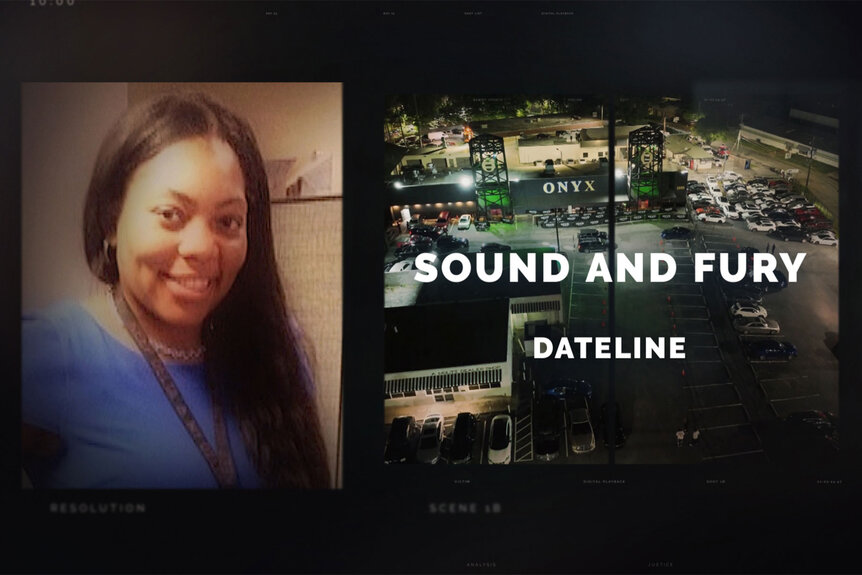
Tiffany Jackson Pugh's killer was a "monster," her friend says
“Knowing that the kids were in the house said to me there was no heart, no regard for life — a monster,” Karmetria Burton, a former colleague and friend of Pugh, said of the killer in the Dateline preview.
The cold-blooded nature of the crime also struck NBC News correspondent Stephanie Gosk, who reported the story.
RELATED: Seemingly "Nice" Man with Two Missing Wives Discovered To Have "Chilling History" By Investigators
“Tiffany Pugh was shot and killed in her own bed. A 30-year-old mother with her whole life ahead of her,” Gosk told NBC Insider . “But beyond the cruelty of killing her, [she was shot when her] two small children were in the home.
"Andre Jr. was just two years old and often slept in the same bed with his mother," Gosk continued. "The image on security cameras of that little boy going to the front door in his pajamas looking for help will stay with me for a long time.”
Why Tiffany Jackson Pugh's murder rocked Atlanta's music scene
Just 10 months before Pugh’s murder, William Fernando Barnes — known in the club scene by the name DJ Nando — was gunned down outside his home in what Gosk described as an “execution style killing.”
“ This show offers a vivid look into the hip hop rap scene in Atlanta," Gosk told NBC Insider . "And while the level of influence the strip clubs have on the industry may have waned in recent years, at the time these two murders took place, hip hop’s Atlanta was like country music’s Nashville.
“The DJs in clubs like Club Onyx made careers," Gosk added of the club where both Pugh's husband and DJ Nando worked. "They wielded an enormous amount of power over what people were listening to.”
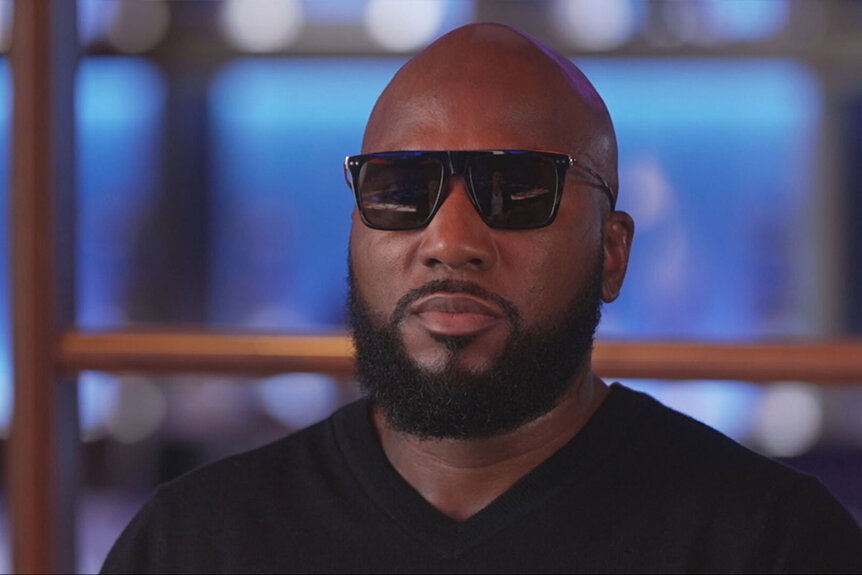
According to Gosk, rapper Jeezy, who is interviewed in the two-hour Dateline episode, “credits his enormous success” to DJ Nando and is still haunted to this day by the brutal killing.
RELATED: Killer "Suddenly" Confesses Four Decades After Shocking Canadian Murders of Two Women
Along with Jeezy, Lee, and Burton, the episode also includes interviews with Pugh’s father Tommy Jackson, Nick Love, and Sabrena Swinger.
To find out who wanted the young mom dead, watch Dateline Friday, May 10 at 9/8c p.m. on NBC or stream the episode the next day on Peacock .
And for even more Dateline , sign up for the show's official newsletter and check out its podcast .

Recommended for You

2-Year-Old Mariska Hargitay Appears on the Merv Griffin Show

Ryan Gosling and Jimmy Fallon Deserve Oscars for Playing Identical-Looking Tough Cops

Scarlett Johansson Matches Katie Britt's SOTU Energy in SNL Parody: Watch

IMAGES
VIDEO
COMMENTS
The College Board recommends spring of junior year as a good time to visit campuses for students who have already done the research on those colleges. College visits are a good use of downtime ...
Step 2: Call the college or university's admissions office. Don't set up a visit online. Talk to an actual person. Or, if you do set up a visit online, call and make sure the admissions office received your scheduled visit—and that it didn't get lost in cyberspace. Have a detailed conversation about what you'd like to do when you're ...
Junior year of high school is a great time to visit college campuses. College visits for high school juniors will help them learn about colleges and decide where to apply. During freshman and sophomore year of high school, students are starting to take advanced classes and trying out different activities as they prepare for college .
The spring of your junior year is a good time if you've already researched colleges. Spring break is also good if you play fall sports or are considering applying under early action or early decision plans, which usually have application deadlines in November of your senior year. Early fall is also a good time for seniors to visit.
As you get closer to your junior and senior year of high school, college visits become more than just an opportunity to understand college more broadly. College visits for juniors and seniors can help students discover their preferences. At this stage of the college search process, students can begin to discern the type of college campus they ...
When planning your campus visits, make sure to allow time to explore each college. While you're there, talk to as many people as possible. These can include college admission staff, professors, and students. Take campus tours and, at colleges you're serious about, make appointments to have interviews with admission counselors.
It's a visit to confirm this is a place worthy of the time and energy of your application. Generally, most college visits before April of senior year serve the purpose of helping you decide if you want to apply - the one exception being visits to schools you're considering applying early decision to (a binding application pathway), or ...
So, getting your campus visits out of the way during junior year will leave you with plenty of time and energy to focus on those! 2. First, take virtual tours and/or attend a college fair . Before you even visit a college in person, narrow down your options by taking virtual campus tours online and, if possible, by attending a college fair.
College Preparation in 11th Grade. Use Junior Year to Create a Winning College Admissions Strategy. In 11th grade, the college preparation process accelerates and you need to start paying careful attention to looming deadlines and application requirements. Realize that in 11th grade you don't need to choose exactly where to apply yet, but you ...
Your College Visit Timeline. May, junior year: choose which colleges to visit; June, junior year: sign up for tours, set up interviews; Late August and early September: visit campuses; January or February, senior year: return to campus for interviews (if necessary) April, senior year: receive acceptance letters
BEFORE Your College Visit: 1. It is important to visit a college while classes are in session. Visiting a college without students on campus is a visit to see a bunch of beautiful (or not so beautiful) buildings. The best way to get a feel for the campus vibe is to plan your visit while the current students are at school.
College visits can help you make an informed decision the best fit college. You don't have to wait until senior year. Consider college visits for juniors! ... Making all of these discoveries during your junior year will leave you free to focus on your academics, college applications, and test prep during your senior year.
The best time during the week is from Monday to Thursday. The campus is busy with students going from class to class or mingling around. The best season to visit colleges is at the beginning of the fall session. The time various from college to college and includes late-summer to the early of September. Spring time can also be ideal especially ...
Hey there! It's a good idea to start thinking about college visits now. The ideal timeline for visiting colleges depends on your schedule and availability; however, here's a general guideline to help you out: 1. Begin exploring colleges online (websites, virtual tours, info sessions) during your sophomore year or early in your junior year.
9. Don't forget academics. It's easy to get wrapped up in the fun aspects of college, like student organizations and extracurriculars. However, students should remember to pay attention to each school's academic offerings. Try to sit in on a class, speak to a student with your prospective major, or meet a professor. 10.
Before a campus visit, students should do basic research on the school. Students and their families have various opportunities to ask questions. No question is dumb. College visits, whether in ...
Touring schools in the fall or spring of your junior year offers some important advantages over waiting until the summer or your senior year. Learn why, explore our advice on getting organized ("College Visits: Challenges and Solutions for High School Students"), and use the College Trip Planner to create your schedule. 1.
Use this handy college visit checklist to get the most out of your college visits. Contact KD for test prep programs and college counseling. Coppell (972) 906-8825 - Flower Mound (214) 285-3500 - Frisco (469) 242-0860 - Plano (972) 867-6544 - Virtual (972) 906-8825 ... Doing the program the summer before junior year — and I only did the one ...
Diving Into Campus Visits. Visiting college campuses is something you can do at any point in your high school journey. But if you haven't done it by Junior Year, it's time to get a move on. Spending time on campus will give you the inside scoop on where you might be spending the next few years! Here are some tips for planning college visits:
These are all important questions in the college preparation, selection, and application process. This is our Great College Advice for juniors to help them stay on track throughout the most important year in the college admissions timeline. The timeline is presented by season. One of the misconceptions of the college planning process is that ...
It's your junior year of high school, and you're eagerly awaiting all the treats your senior year has to offer — prom, senior privileges, graduation and college decisions! But try not to put off college visits, tours or interviews to your senior year. Exploring your college options during your junior year will give you more time to find ...
College Visits and Tours. By visiting college campuses in person, you can make college application decisions with all five senses. ... If you schedule a tour toward the end of your junior year or into your senior year, you'll want to let the college staff know that you will be applying or have applied.
Our standard recommendation is to start thinking about college visits during junior year of high school. (Our blog posts here and here provide additional context on the benefits of junior year college visits.) However, there are some cases where some students could benefit from college visits earlier in their high school careers. For some, a ...
In junior year, time quickly gets away from you - especially if you play sports. So start your research, make your list of schools, and schedule those college visits early. Research colleges online and make a list of schools that interest you based on majors, size, location, school spirit and more.
College visits and applications: Many students use the summer before their senior year to visit colleges and start working on their applications. ... Plus, taking the test earlier in your junior year allows you to identify areas that need improvement and work on them well before college application deadlines. Remember that everyone has a ...
The type of college tour you will be attending plays a significant factor in what you should wear. What to Wear on a College Tour for Simple Visits. If it is a typical college visit, a pair of jeans and a T-shirt are fine for a casual college visit. Most simple college tours are less than a day and can range from two to eight hours of ...
The players are listed alphabetically. Players on the Annika Award Watch List were selected by a panel of college golf media, including those from Golfweek. College golf: Meet the 30 teams, 6 individuals who advanced to the Division I Women's Golf National Championship. Here are the 10 players on the final watch list for the 2024 Annika Award:
AP coordinators are responsible for notifying students when and where to report for the exams. Early testing or testing at times other than those published by College Board is not permitted under any circumstances. Late-testing dates are available if students cannot test during the first two full weeks of May. See the late-testing schedule.
Find out more about Tiffany Jackson Pugh, the 30-year-old wife of an Atlanta DJ, who was fatally shot at her house while her two young children were also home.
Darius Acuff Jr., the top point guard in the 2025 recruiting class, will be on campus to visit Arkansas on Friday afternoon. The five-star guard prospect is the first player from the 2025 class to ...